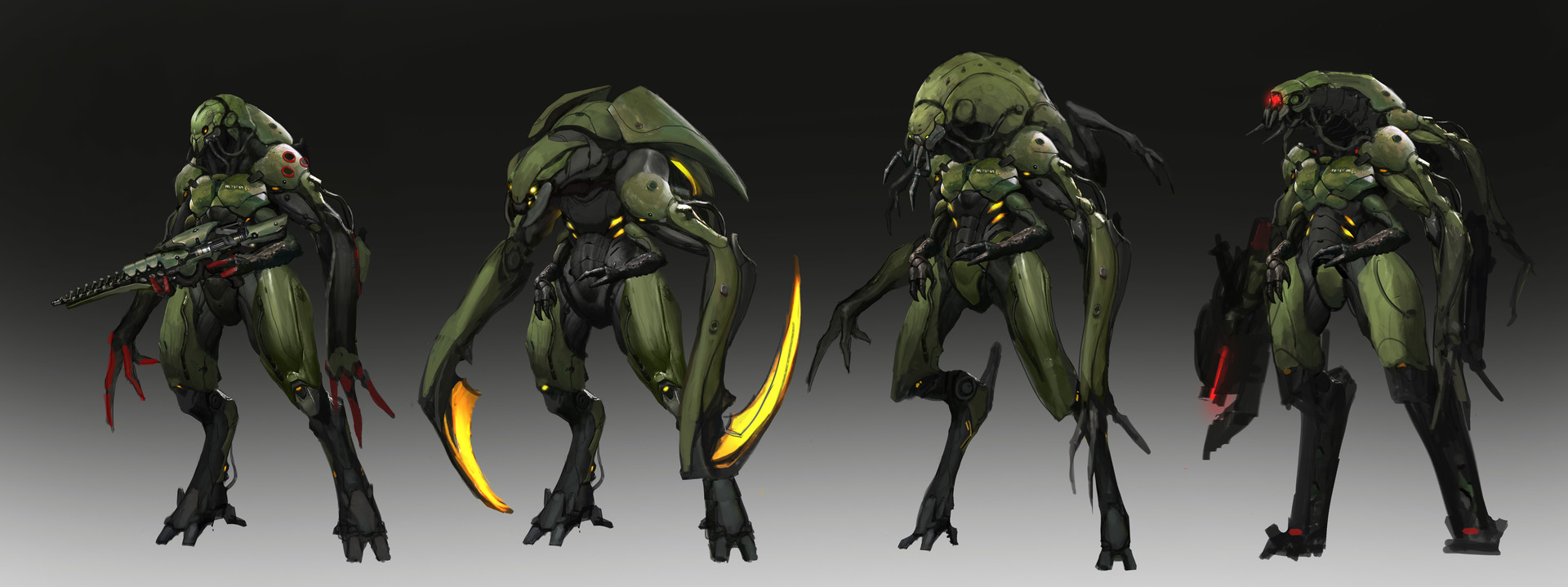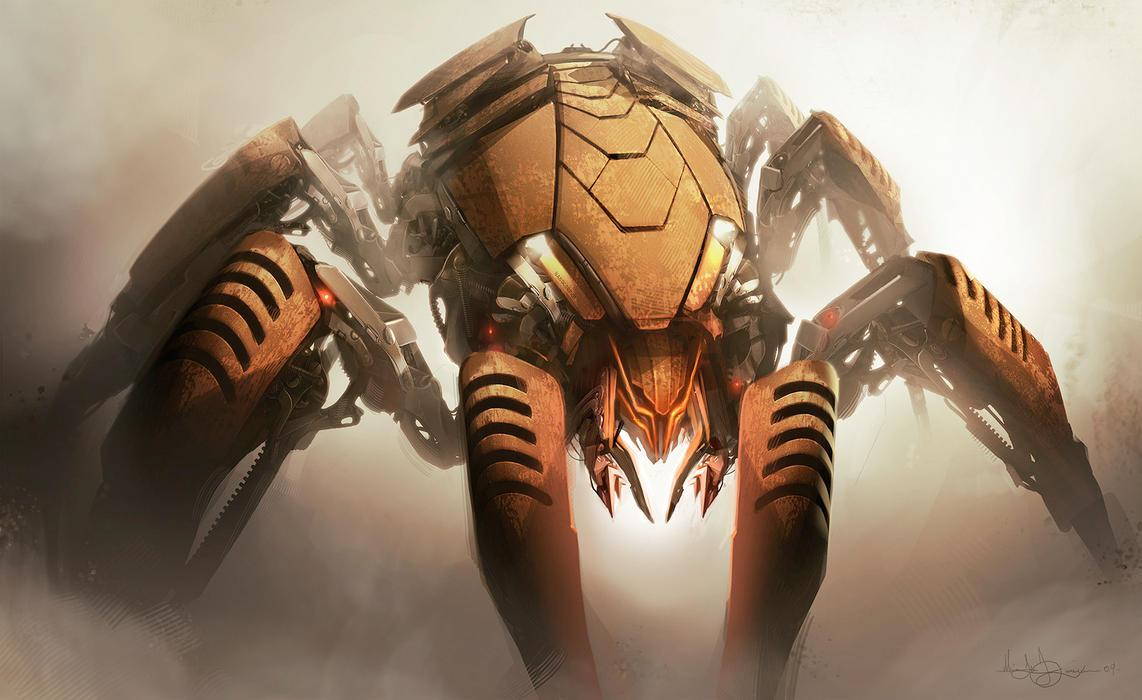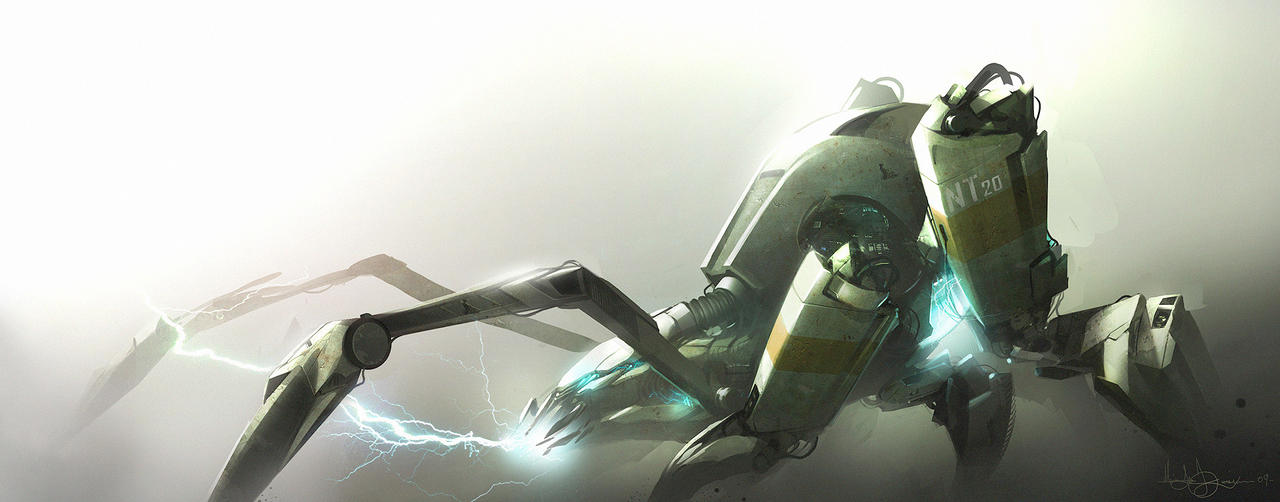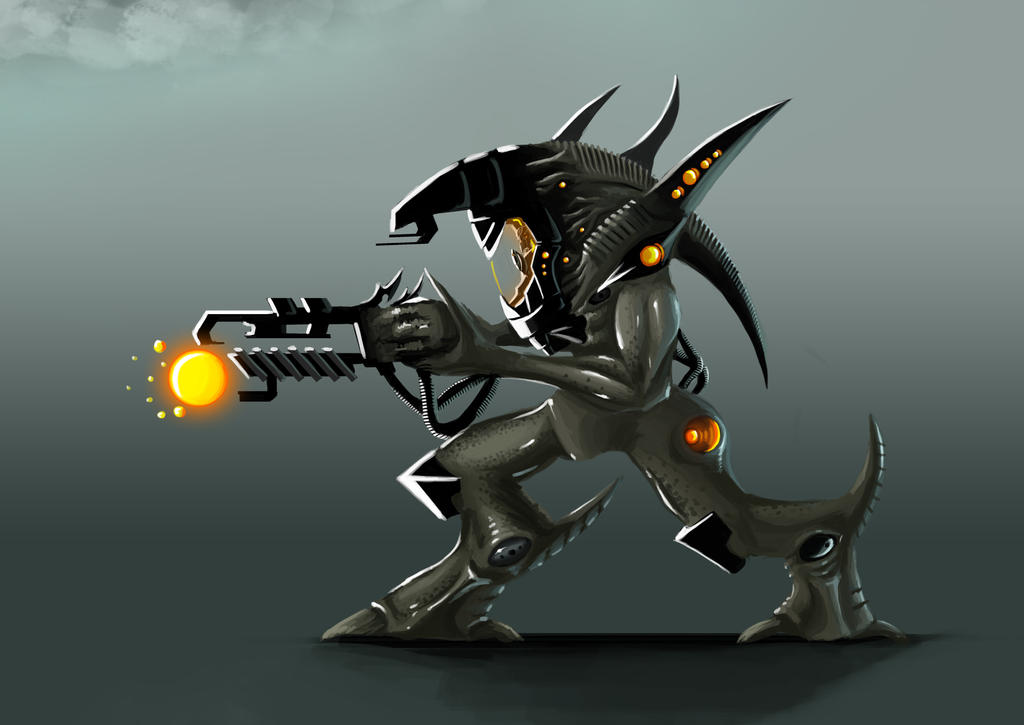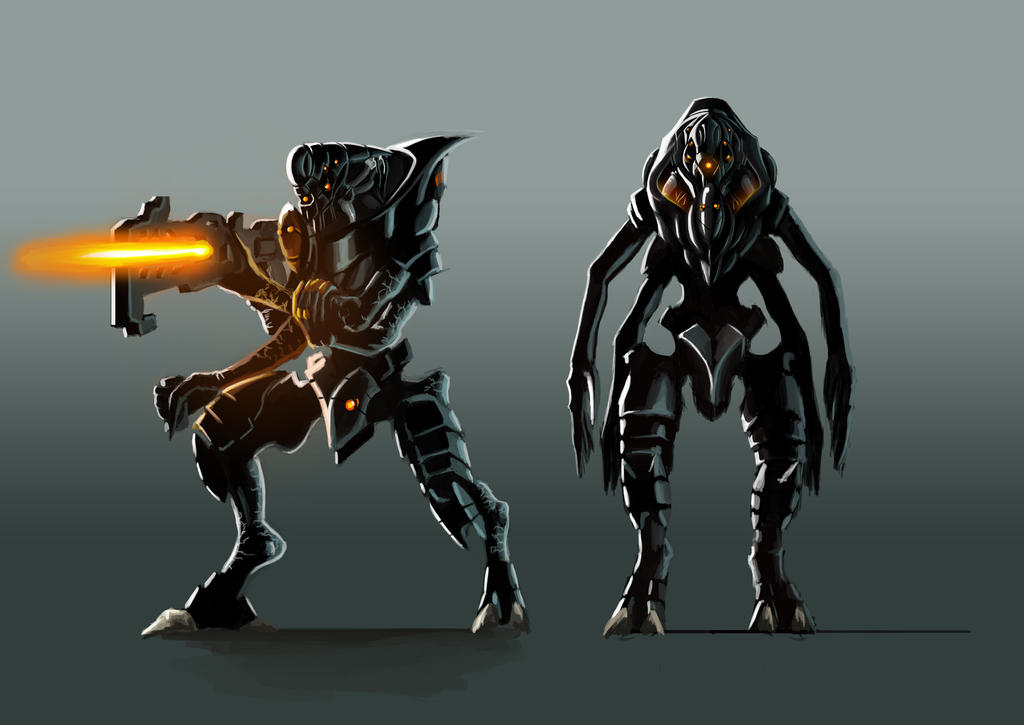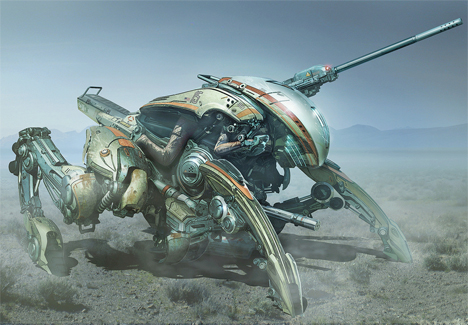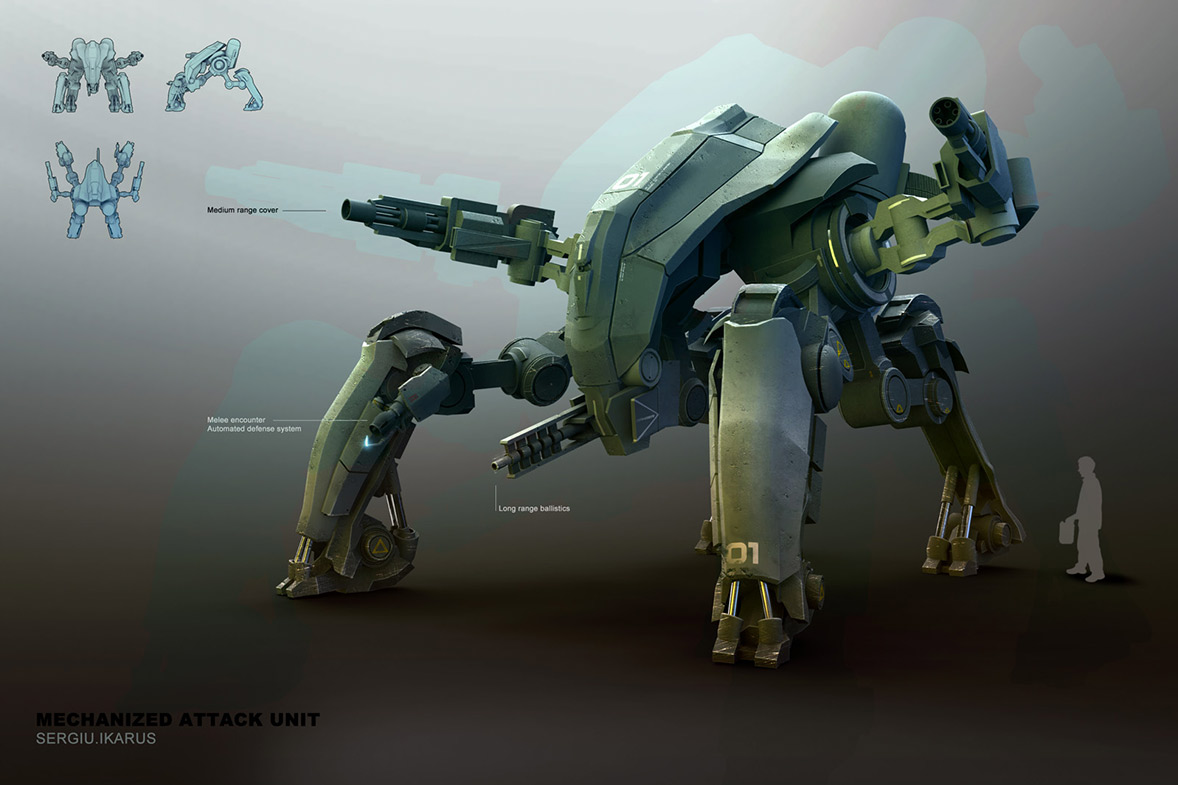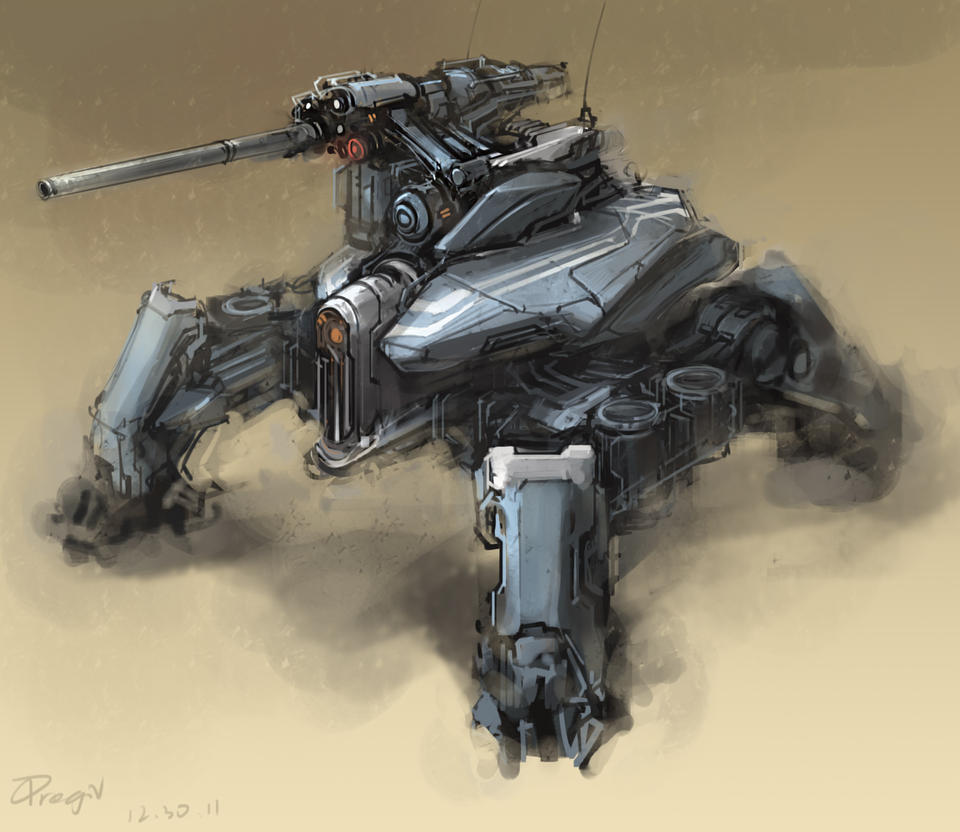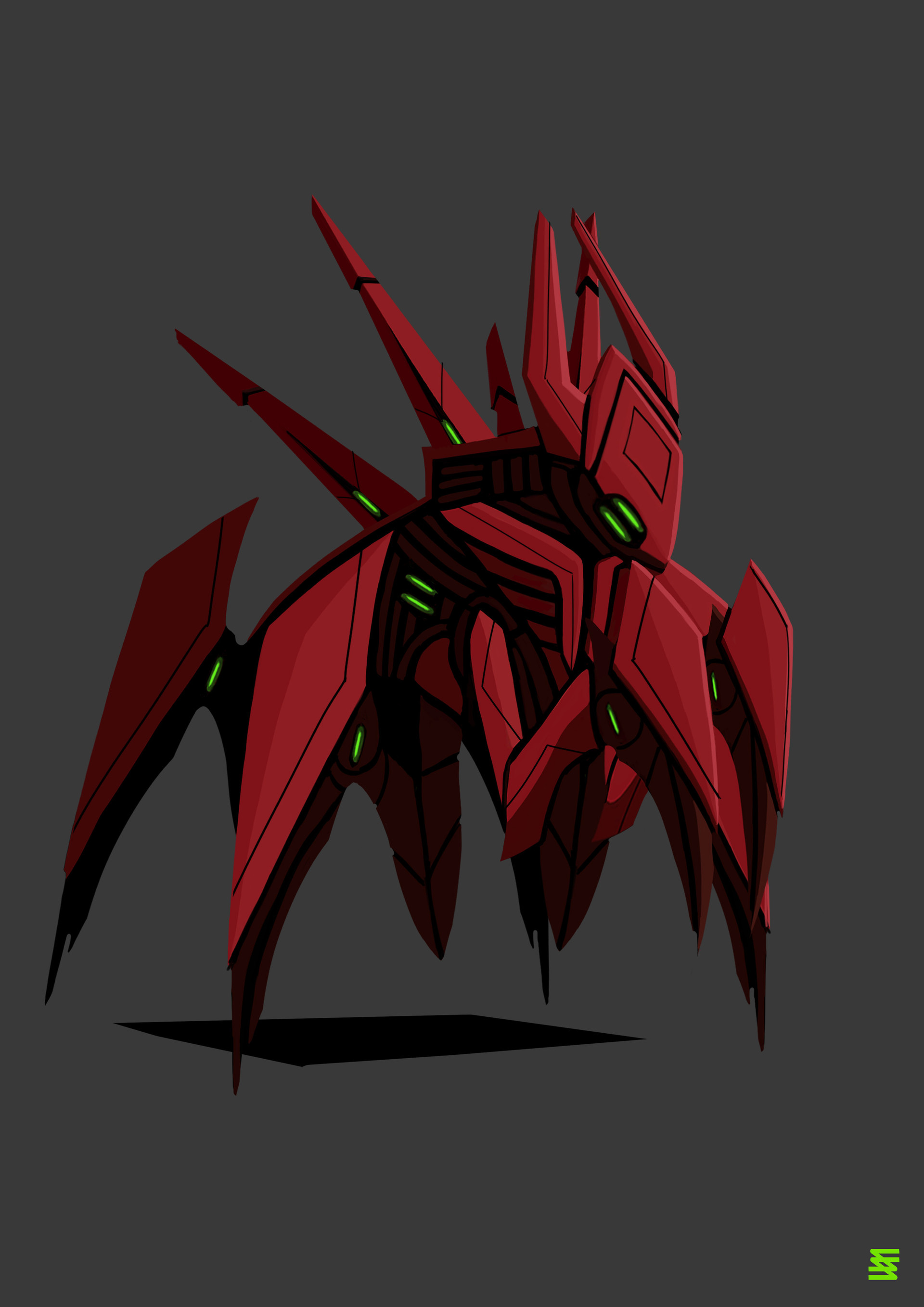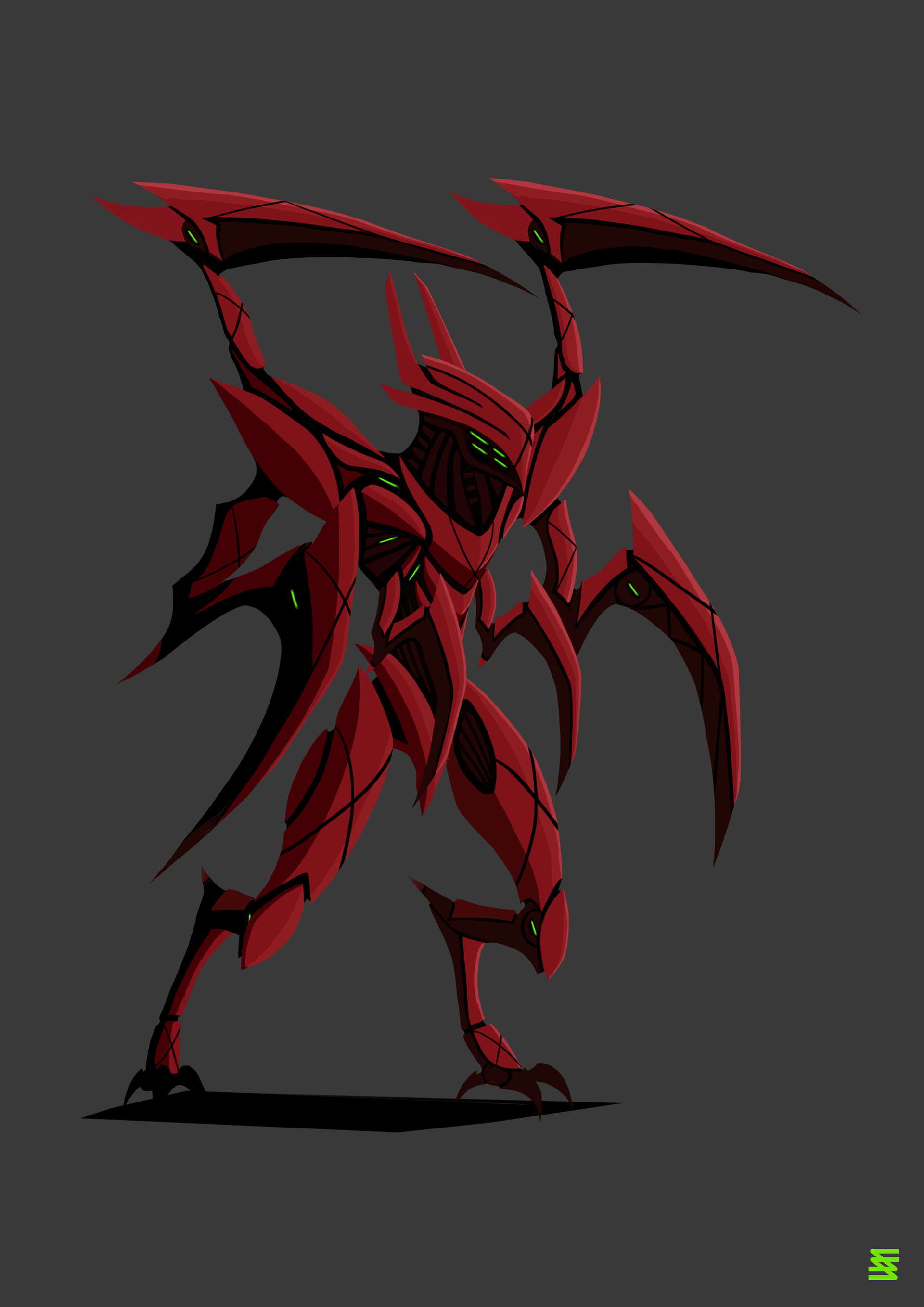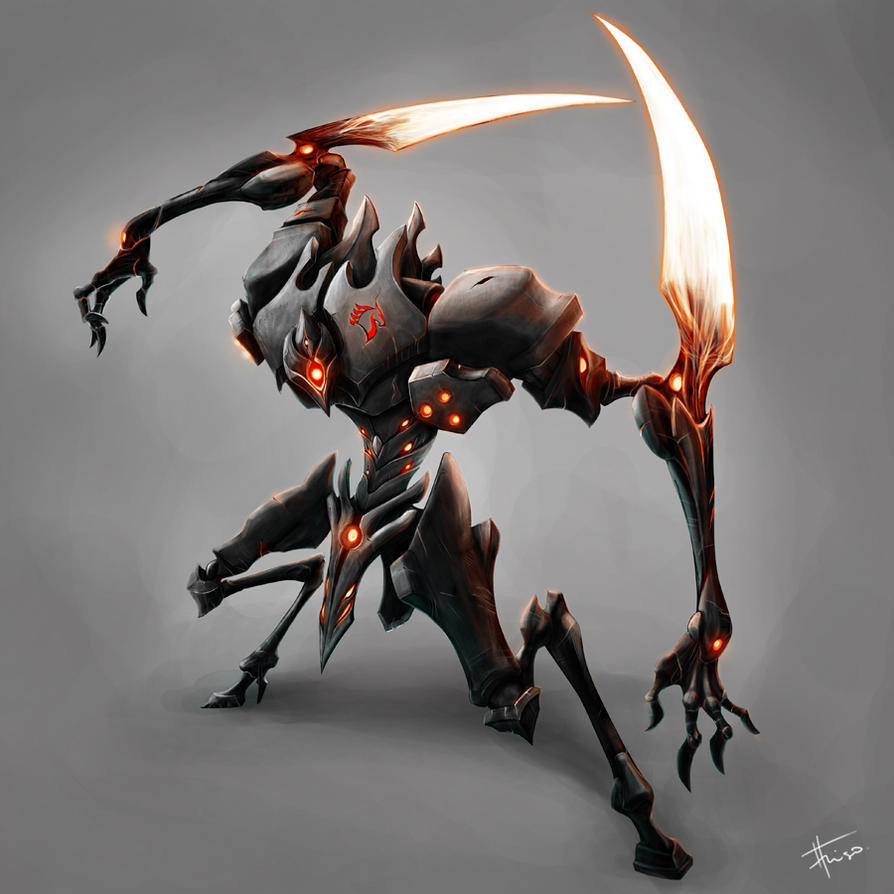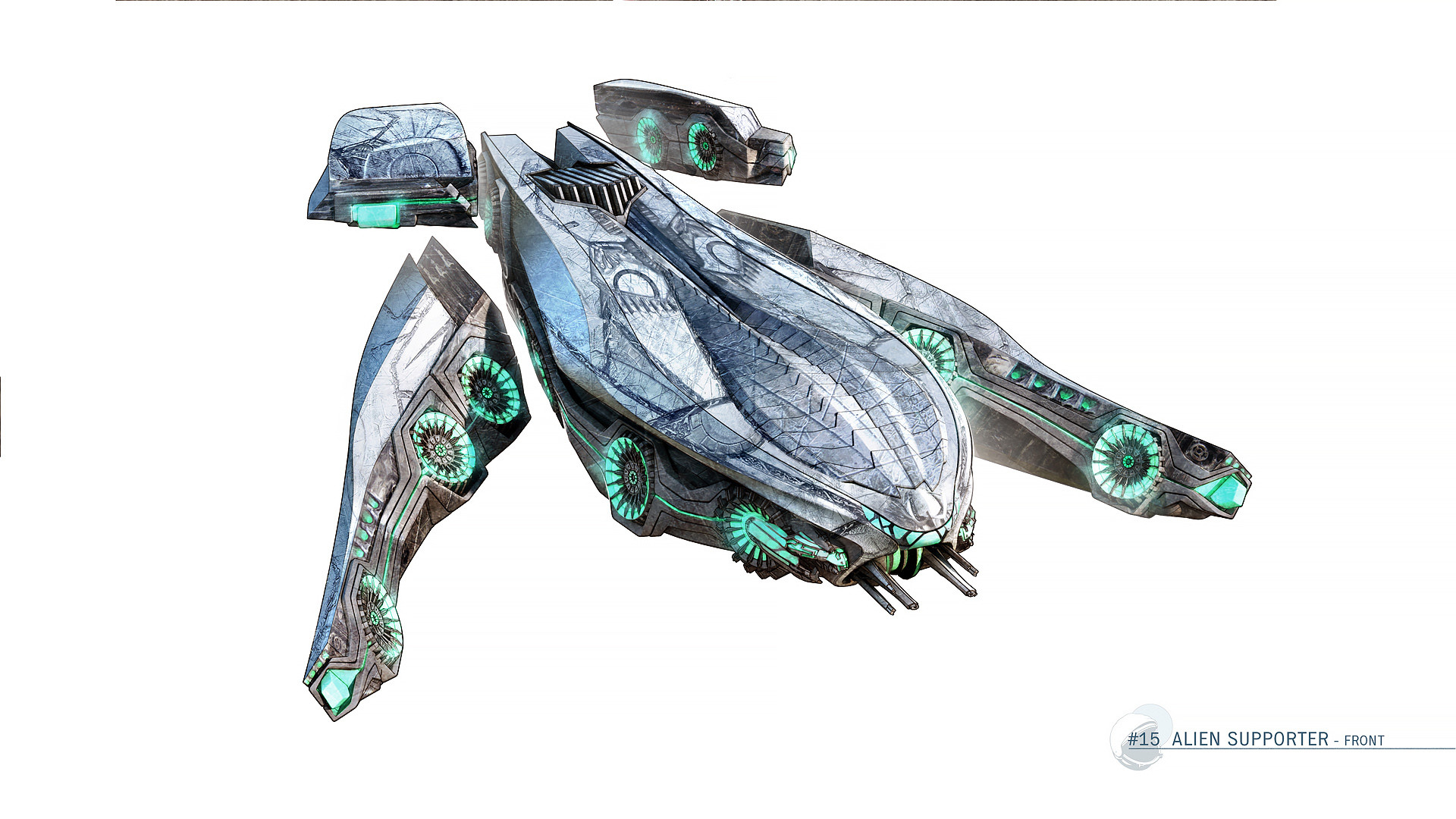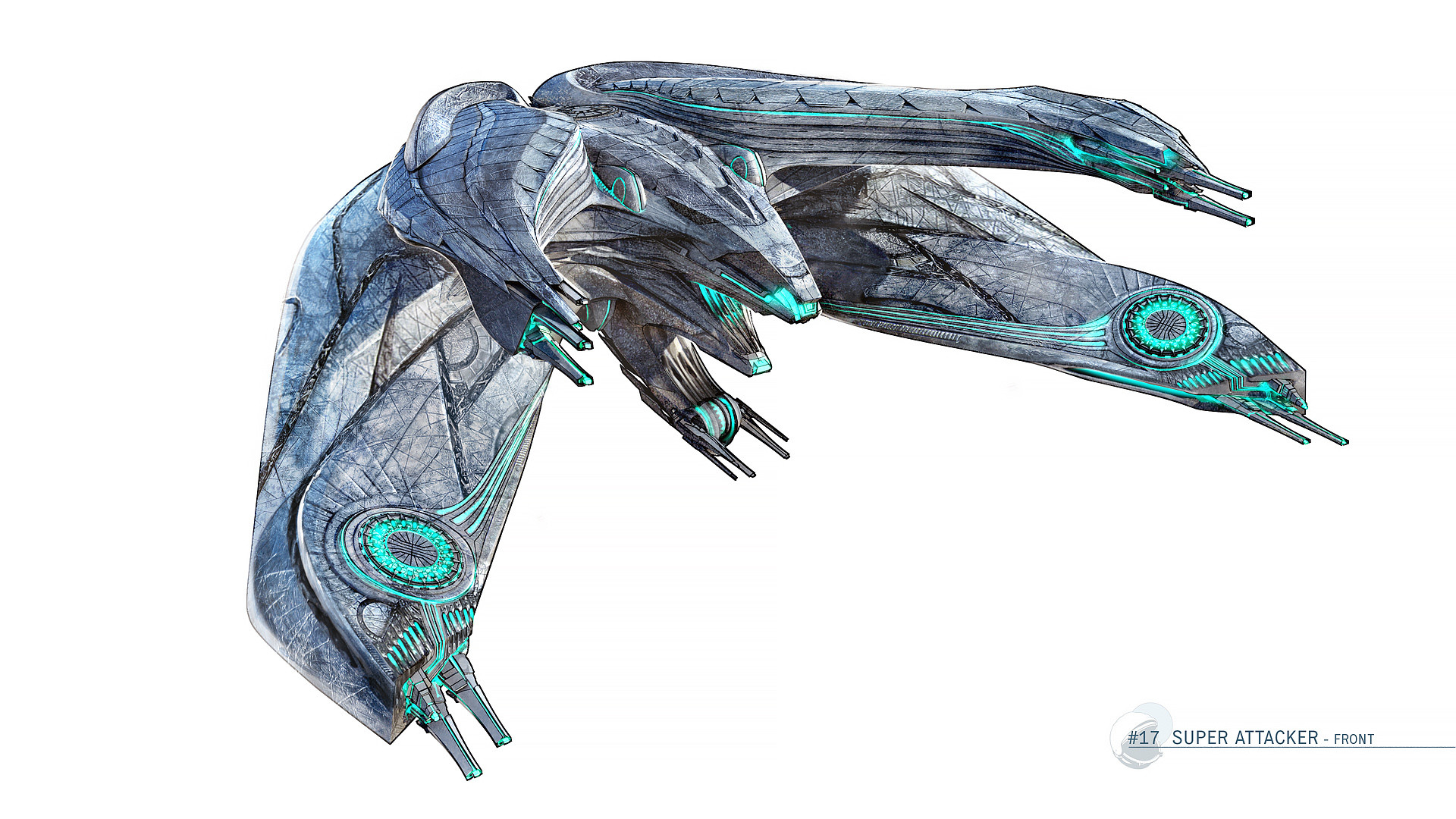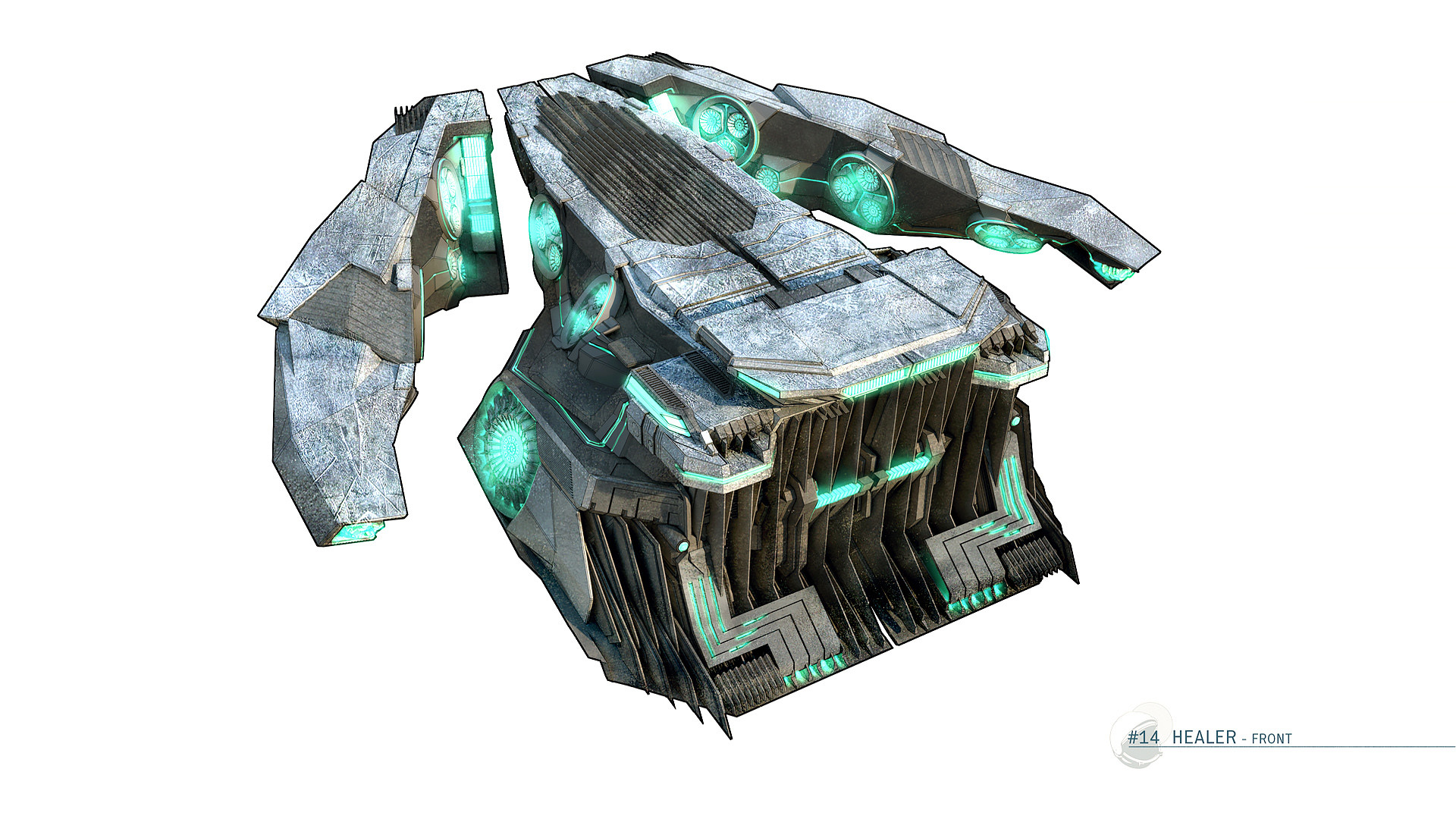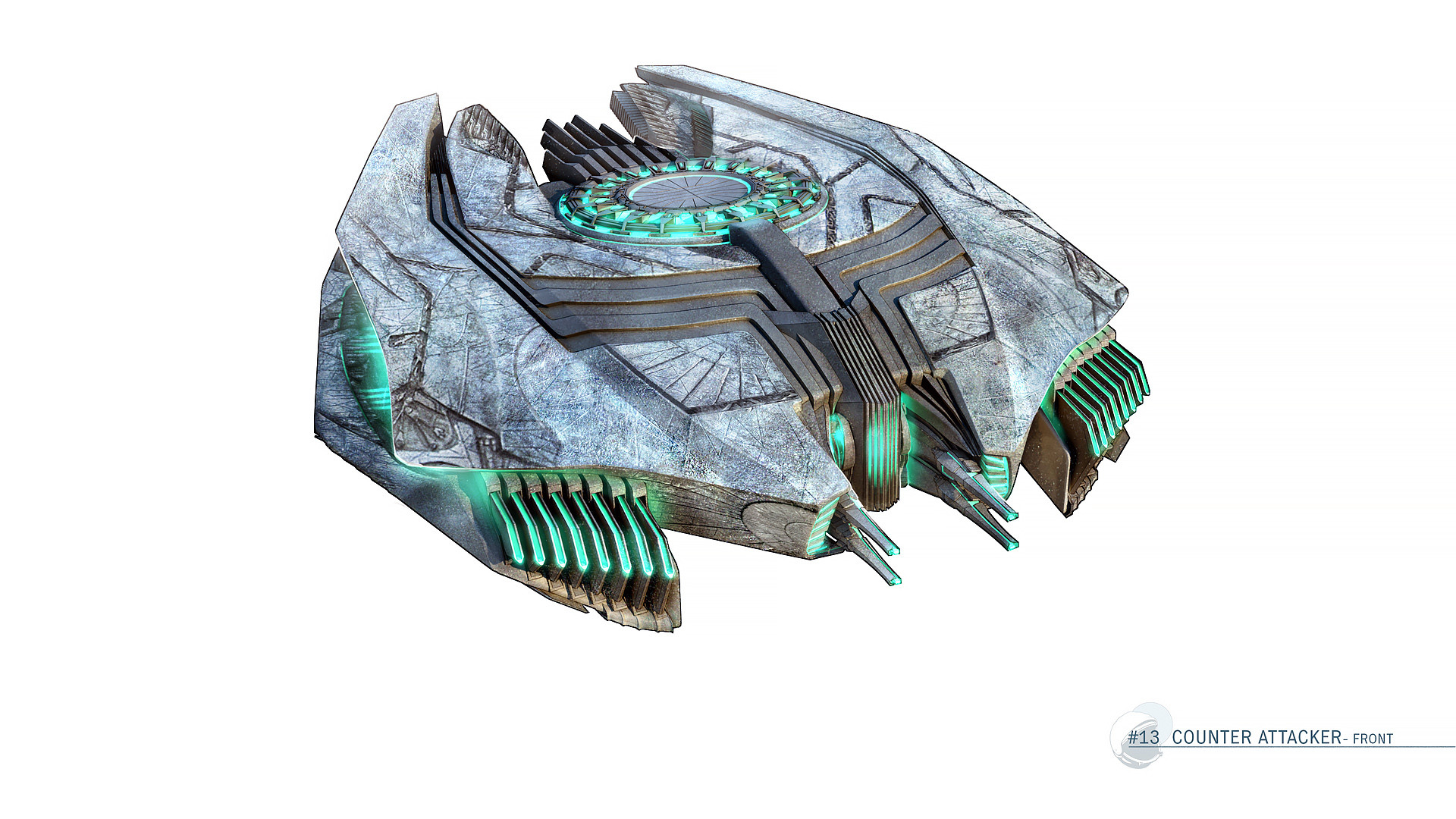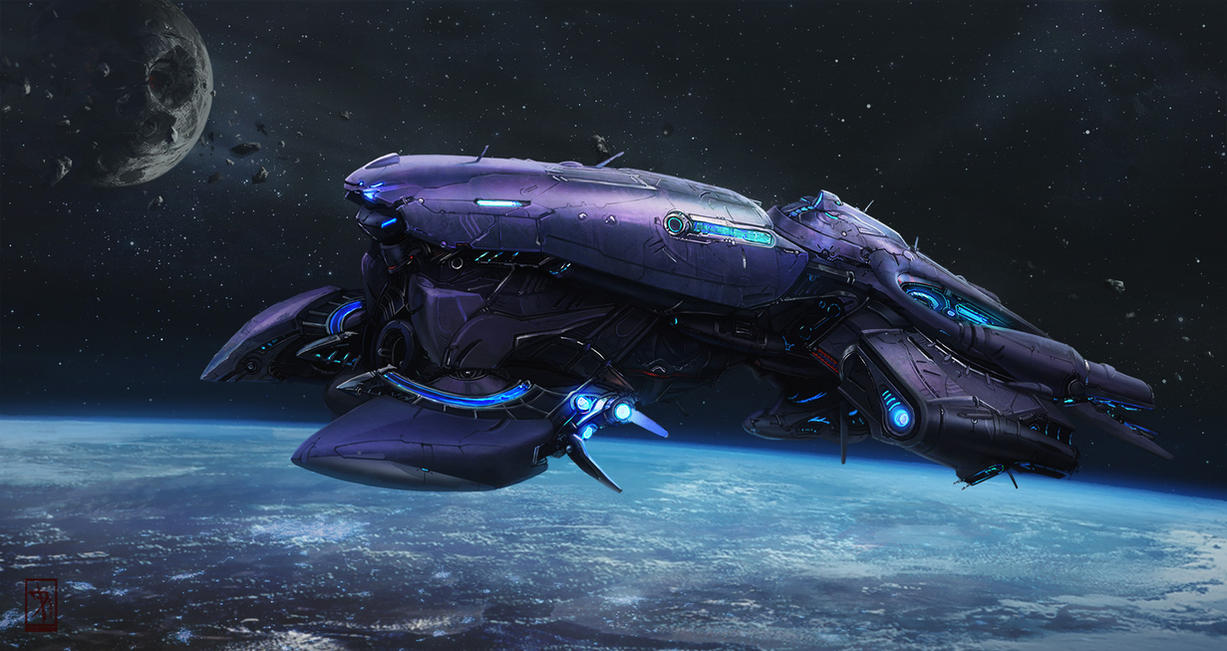Si quis foris provincia fugire timtaverit, morti incurrat periculum, et res eius infiscentur.
Oraculum Member
Perambulans in tenebris
Status
User has no status, yet
Bio
User has no bio, yet
Most Recent Posts
In
Ruins of God -- Dark Age Character RP (Barbarian setting)
→
6 yrs ago
Forum: Advanced Interest Checks
Lest I end up being missed at the next roll call, here goes the usual three-week disappearance warning. Whichever way the choice may go (to me, this thread looks like it's still got much to give, for all my humble uninformed opinion might be worth), I'll always come back to a Divinus, in any size, shape and colour.
Skyport Ussviset
Esevrenn City-Hive
Ske'sta'Rvastre
Although she had never seen any herself, Issrin knew that the skyports of major inner galactic planets were, for the most part, grandiose things, vast enough to allow hundreds of thousands of passengers to go in or out and inevitably wait some hours for their vessel to land. She had heard of the bustle, the noise and smells, the decorations, and could imagine them well enough if she thought of a capital bio-plant. Thus, despite lacking any experience by way of comparison, she knew she much preferred skyports as they were in the Nests, even disregarding the matter of human-sized passageways. Ussviset expressed her sentiment perfectly: despite being arguably one of the most important landing sites on no less than Ske'sta'Rvastre, the seat of the Assembly and every corporation whose name was a nest-hold word, it had a subdued, somewhat quaint - provincial, a human would have called it - air about itself. The entryway building was unassuming, much shorter than the average housing spire, and its chambers were a soft, pleasant hue of greenish-brown. It was past high noon, and the halls were almost empty, with only the occasional group of Zsresriir or single Scorpine idly crawling by. The scent was earthy, almost pristine.
Beyond the access structure, several paths branched off towards different parts of the site. Issrin followed the main connection to the landing pad area past the temporary storage silos, then split away from the thin stream of passers-by headed to the public departure terminals and took a turn into a narrower pathway winding deeper into the skyport. Despite her status, she had never travelled through an official-only access hive - her work, much less her life had never taken her offworld before, and even this last time the Assembly had barely bothered to reimburse her standard shipping tax. Now, she would see the restricted zone of not just any port, but of one on Ske'sta'Rvastre, and she could not help but feel curious. How did the core's elites treat themselves on their business journeys, she wondered?
It turned out that the core's elites either wanted to make a show of their frugality or outright lacked the budget to have something entirely presentable. The path that led to the hive did not feel worn and its lack of visible security was not to be trusted, but it certainly cut and wound through some odd places. The vegetation around it was overgrown, and once it passed not too far away from a sparsely fenced scrapyard, with what Issrin was certain were a pair of ferals digging through it. The access building was little better, being unassuming on the outside, though slightly more spacious than the entry halls within. The only marked improvement was in the smell, which was even fresher here, likely due to there being even less people about.
In fact, she only noticed one group standing in the further half of the central chamber. They were an odd assemblage – the four armed Zsresriir wearing light combat membranes were its least remarkable members. More remarkable was the large shape crouching in their midst. It was the first time Issrin saw a live Rekshai, and the impression was not a pleasant one. She could smell it from across the room, a faint, pungent blend of alien flesh, metal and chemical-ridden blood; undoubtedly, it could perceive her much better. Its bulk shifted somewhat, and she caught the gleam of a narrow, inexpressive eye. By a reflex she did not suppress, she snapped her mandibles and raised her carapace in a threatening stance. The Rekshai turned away with an air of disinterest. If they were taking it here without restraints, it must have been a mostly cooperative specimen, albeit the Zsresriir around it were conspicuously holding their pulse rifles at the ready.
The sixth figure in the group was squat, bulky and donning an oblong breather mask. As it gestured, engaged in conversation with one of the Zsresriir, the chitinous blades of the rear of its arms briefly flashed into view. One of those Lonoxi people. It was a wonder how so many of them managed to find their way here, though it seemed that most of them were clones. A suspicion stirred in Issrin’s mind. This motley could very well have been one of the things that held that way open. As far as she knew, the Repopulators organised this whole operation, and they could give their people passage via the restricted port zones, as well as being more selective about what went into their vats than who they hired to do their work.
With a distant sound of plodding footsteps, an armoured Ulthari appeared from one of the shadowed recesses in the back wall and beckoned to the creatures with a gesture. The group raised itself from its folded legs and shuffled, or in the Rekshai's case loped, into the awning corridor entrance. The chamber was left empty, save for Issrin, who idly followed the departing crew with her eyes until it disappeared into the unlit passage. The Lonoxi had still been gesturing all the way-
Schreetch.
She turned, rather swiftly for her bulk, in the direction the sound had come from. It had been the customary call for attention of the Rvasstran Zsresriir, but with some clear, almost crass metallic undertones and obviously artificial modulation. Indeed, it was a human shape in nondescript grey and black, likely some low-ranked uniform, that was walking towards her from one of the side ends, one hand raised in a reasonably good imitation of a greeting gesture. She responded in kind.
"You have been directed here by the Transstellar diplomatic service, yes?"
At least he - as it seemed from the artificial voice, which was set to a male timbre - was more polite than that Qiormu1. Not that it was saying much, but it was a start. She motioned her assent. "Censor-Inspector Tesri Nth'issrin. Issrin." Her mandibles rapped against one another. "I wasn't told why I should be here."
"You weren't?" The human cocked his head aside in perplexity. "It's up to me, then. Ovrith Terech, Free Speaker-"
He was about to continue, but Issrin interrupted him as he was audibly inhaling. "Terech, like that Prophet from Volthanek?"
The Speaker nodded. "Like him. Better said, a clone offshoot of his. See-" he gestured as if to pull the subject back where he had left it, "- Issrin, call me Ovrith, please, we're about to leave the Vacuus. You do know the Assembly is sending regular officer support to the Neo-Scorpine." He recoiled slightly as the large Zsresriir stepped up to loom over him, impatient annoyance glistening in her eyes despite them being perfectly inexpressive. "We are attached to the expedition core as links to the Coalition. To ease relations, well, talks..." His mask's translator fell silent as his true voice died somewhere in his throat. Issrin had raised her forelimbs dangerously close to his head and chest, and by how their talons were twitching it seemed she was likely to vent her pent-up anger on the sorry sack of intestine and endoskeleton before her.
"I must leave Nest space?!" she almost screeched in a way that would have sent the dullest, hungriest of ferals scurrying off. "NOW?!" The sound was loud enough to draw the attention of whatever was lurking in one of the side corridors. A hideous, yet oddly sleek and, in its way, striking head of skin and chitin curiously edged its way out of the shadows. An asymmetrical arrangement of many-coloured eyes glanced at the scene as multiple parallel tooth-lined lateral jaws dripped and clicked below them. Issrin motioned that nothing was the matter, and the head disappeared.
"The worst idea they could have..." She began to his something in her native dialect, then checked herself and paced to the further wall and back, slightly spinning her arms at their joints as she went. Terech smoothed his uniform with practiced, yet nervous gestures. "Does that mean you decline?" he ventured at last.
"No." came a more even droning answer. "It's another way of pushing Cultors around, in the end. There better be a relay terminal somewhere here."
"Not far at all, just before the exit." The human seemed relieved, for all that could be discerned under his mask. "Your nest?"
"Not mine." Issrin made the sign of descendance. "I'm a drone, you could say." She was not certain whether that expression2 was so well known here. Casting her eyes around, she swayed towards the opening where the strange head had emerged from. "There are many hybrids here?"
Terech shook his head. "That's a human, if you'll believe it, one of these unborn augmented. It should be a Speaker to Perseus. They ought' take better to one of theirs, by the plan."
"About that," Issrin snapped, "why does the Assembly need me with the Scorpines?"
"Not as anything too complex. The expedition scheme had it we'd have someone for ethnic representation..." His voice trailed off again as the Zsresriir unfolded her shell in a worse than foreboding manner. "I think we should go find that terminal," he managed to find the thread again, "it's almost time. Sky Commandant Uchinex, our core, I mentioned, might already be waiting. He's an admirable personality, really..."
Their voices trailed off as they walked into the central corridor, Terech occasionally lengthening his steps to keep pace with Issrin's broad strides. From the darkness, an asymmetrical web of eyes watched them disappear for lack of anything better to do.
Esevrenn City-Hive
Ske'sta'Rvastre
Although she had never seen any herself, Issrin knew that the skyports of major inner galactic planets were, for the most part, grandiose things, vast enough to allow hundreds of thousands of passengers to go in or out and inevitably wait some hours for their vessel to land. She had heard of the bustle, the noise and smells, the decorations, and could imagine them well enough if she thought of a capital bio-plant. Thus, despite lacking any experience by way of comparison, she knew she much preferred skyports as they were in the Nests, even disregarding the matter of human-sized passageways. Ussviset expressed her sentiment perfectly: despite being arguably one of the most important landing sites on no less than Ske'sta'Rvastre, the seat of the Assembly and every corporation whose name was a nest-hold word, it had a subdued, somewhat quaint - provincial, a human would have called it - air about itself. The entryway building was unassuming, much shorter than the average housing spire, and its chambers were a soft, pleasant hue of greenish-brown. It was past high noon, and the halls were almost empty, with only the occasional group of Zsresriir or single Scorpine idly crawling by. The scent was earthy, almost pristine.
Beyond the access structure, several paths branched off towards different parts of the site. Issrin followed the main connection to the landing pad area past the temporary storage silos, then split away from the thin stream of passers-by headed to the public departure terminals and took a turn into a narrower pathway winding deeper into the skyport. Despite her status, she had never travelled through an official-only access hive - her work, much less her life had never taken her offworld before, and even this last time the Assembly had barely bothered to reimburse her standard shipping tax. Now, she would see the restricted zone of not just any port, but of one on Ske'sta'Rvastre, and she could not help but feel curious. How did the core's elites treat themselves on their business journeys, she wondered?
It turned out that the core's elites either wanted to make a show of their frugality or outright lacked the budget to have something entirely presentable. The path that led to the hive did not feel worn and its lack of visible security was not to be trusted, but it certainly cut and wound through some odd places. The vegetation around it was overgrown, and once it passed not too far away from a sparsely fenced scrapyard, with what Issrin was certain were a pair of ferals digging through it. The access building was little better, being unassuming on the outside, though slightly more spacious than the entry halls within. The only marked improvement was in the smell, which was even fresher here, likely due to there being even less people about.
In fact, she only noticed one group standing in the further half of the central chamber. They were an odd assemblage – the four armed Zsresriir wearing light combat membranes were its least remarkable members. More remarkable was the large shape crouching in their midst. It was the first time Issrin saw a live Rekshai, and the impression was not a pleasant one. She could smell it from across the room, a faint, pungent blend of alien flesh, metal and chemical-ridden blood; undoubtedly, it could perceive her much better. Its bulk shifted somewhat, and she caught the gleam of a narrow, inexpressive eye. By a reflex she did not suppress, she snapped her mandibles and raised her carapace in a threatening stance. The Rekshai turned away with an air of disinterest. If they were taking it here without restraints, it must have been a mostly cooperative specimen, albeit the Zsresriir around it were conspicuously holding their pulse rifles at the ready.
The sixth figure in the group was squat, bulky and donning an oblong breather mask. As it gestured, engaged in conversation with one of the Zsresriir, the chitinous blades of the rear of its arms briefly flashed into view. One of those Lonoxi people. It was a wonder how so many of them managed to find their way here, though it seemed that most of them were clones. A suspicion stirred in Issrin’s mind. This motley could very well have been one of the things that held that way open. As far as she knew, the Repopulators organised this whole operation, and they could give their people passage via the restricted port zones, as well as being more selective about what went into their vats than who they hired to do their work.
With a distant sound of plodding footsteps, an armoured Ulthari appeared from one of the shadowed recesses in the back wall and beckoned to the creatures with a gesture. The group raised itself from its folded legs and shuffled, or in the Rekshai's case loped, into the awning corridor entrance. The chamber was left empty, save for Issrin, who idly followed the departing crew with her eyes until it disappeared into the unlit passage. The Lonoxi had still been gesturing all the way-
Schreetch.
She turned, rather swiftly for her bulk, in the direction the sound had come from. It had been the customary call for attention of the Rvasstran Zsresriir, but with some clear, almost crass metallic undertones and obviously artificial modulation. Indeed, it was a human shape in nondescript grey and black, likely some low-ranked uniform, that was walking towards her from one of the side ends, one hand raised in a reasonably good imitation of a greeting gesture. She responded in kind.
"You have been directed here by the Transstellar diplomatic service, yes?"
At least he - as it seemed from the artificial voice, which was set to a male timbre - was more polite than that Qiormu1. Not that it was saying much, but it was a start. She motioned her assent. "Censor-Inspector Tesri Nth'issrin. Issrin." Her mandibles rapped against one another. "I wasn't told why I should be here."
"You weren't?" The human cocked his head aside in perplexity. "It's up to me, then. Ovrith Terech, Free Speaker-"
He was about to continue, but Issrin interrupted him as he was audibly inhaling. "Terech, like that Prophet from Volthanek?"
The Speaker nodded. "Like him. Better said, a clone offshoot of his. See-" he gestured as if to pull the subject back where he had left it, "- Issrin, call me Ovrith, please, we're about to leave the Vacuus. You do know the Assembly is sending regular officer support to the Neo-Scorpine." He recoiled slightly as the large Zsresriir stepped up to loom over him, impatient annoyance glistening in her eyes despite them being perfectly inexpressive. "We are attached to the expedition core as links to the Coalition. To ease relations, well, talks..." His mask's translator fell silent as his true voice died somewhere in his throat. Issrin had raised her forelimbs dangerously close to his head and chest, and by how their talons were twitching it seemed she was likely to vent her pent-up anger on the sorry sack of intestine and endoskeleton before her.
"I must leave Nest space?!" she almost screeched in a way that would have sent the dullest, hungriest of ferals scurrying off. "NOW?!" The sound was loud enough to draw the attention of whatever was lurking in one of the side corridors. A hideous, yet oddly sleek and, in its way, striking head of skin and chitin curiously edged its way out of the shadows. An asymmetrical arrangement of many-coloured eyes glanced at the scene as multiple parallel tooth-lined lateral jaws dripped and clicked below them. Issrin motioned that nothing was the matter, and the head disappeared.
"The worst idea they could have..." She began to his something in her native dialect, then checked herself and paced to the further wall and back, slightly spinning her arms at their joints as she went. Terech smoothed his uniform with practiced, yet nervous gestures. "Does that mean you decline?" he ventured at last.
"No." came a more even droning answer. "It's another way of pushing Cultors around, in the end. There better be a relay terminal somewhere here."
"Not far at all, just before the exit." The human seemed relieved, for all that could be discerned under his mask. "Your nest?"
"Not mine." Issrin made the sign of descendance. "I'm a drone, you could say." She was not certain whether that expression2 was so well known here. Casting her eyes around, she swayed towards the opening where the strange head had emerged from. "There are many hybrids here?"
Terech shook his head. "That's a human, if you'll believe it, one of these unborn augmented. It should be a Speaker to Perseus. They ought' take better to one of theirs, by the plan."
"About that," Issrin snapped, "why does the Assembly need me with the Scorpines?"
"Not as anything too complex. The expedition scheme had it we'd have someone for ethnic representation..." His voice trailed off again as the Zsresriir unfolded her shell in a worse than foreboding manner. "I think we should go find that terminal," he managed to find the thread again, "it's almost time. Sky Commandant Uchinex, our core, I mentioned, might already be waiting. He's an admirable personality, really..."
Their voices trailed off as they walked into the central corridor, Terech occasionally lengthening his steps to keep pace with Issrin's broad strides. From the darkness, an asymmetrical web of eyes watched them disappear for lack of anything better to do.
The Great Ring, 16 PR
The sun beat down brightly, mercilessly and, it seemed, mockingly in the empty dazzle of its rays. Although the day was as dry and luminous as the glare from above promised, it was also cold. Not the cold of a winter night, or the brutal gusts of a chilling wind, but that mild, uncomfortable coolness that did nothing but remind that this day did not belong in its season.
Once, it would have been said that it was an unusually cold day. But now, Ittekka grimly reflected, it made no sense to even try and think what was usual and what was not.
Ahead of them, the colossal beast was trampling a copse of blade-leafed trees. Some of them raised their shaggy heads almost as high as the top of the hill where her party was huddled amid the brush, yet the monster effortlessly ground them under its clawed feet. It was difficult to say which part of it was the most sickening - the many spider-legs ending in birdlike talons, the swollen body, long and drooping like some sort of hard-shelled caterpillar, or the great, cruel eyes. Everything in it seemed made to inspire disgust. If it was indeed Jahan that had birthed these brutes out of spite against the beauty of the world, as some of the elders thought, then his desecration had been a success.
Some also said that it was the horrors themselves that brought the cold, they or the Grey Blight that sent them. The summer heat had begun to wane soon after they first appeared, the tales told, and they crushed and devoured every sign of life and colour they met. Would it not be natural for such abominations to drain the vital warmth of the land, like the incarnations of primal evil they were?
Ittekka was not sure when exactly the cold had begun, but she was confident enough it was before the creatures of the Blight had passed north of Naudeng, or maybe even Gisab. Travelling urts told that the sun had lost its warmth as far as the upper edge of the Ring, where the grass met the dry plains, and there was no taint there, either. Besides, she found that this belief did more harm than it could have helped. The spawn of the grey foulness were fearsome enough on their own; she could see it down at the foot of the hill, and everyone had when they had breached the walls of Gisab and trampled the city into ruin. To ascribe godlike might to them was to needlessly poison one’s mind with dread just when all its cunning was needed.
In truth, though she would rather not think of it, that dread was mostly her own. Oddly, or perhaps appropriately, for the daughter of a bloodline of shamans, Ittekka had always feared the thought of a malicious god. She knew, of course, that not all gods were good. The lords of flame and river could be fickle and cruel. Jahan and the star-spirits were monstrous and perverse. Life-Deer knew only to follow its nature. Yet all of those could either be appeased, or banished by distance and the protection of their gentler brethren. The Blight, on the other hand, was blind, voiceless and savage, and it now stood almost on her doorstep, even as the gods of earth and sky had been silent for years. The idea of it being divine was unendurable.
“It’s almost here. It’ll climb up right away. Is this the time?”
The voice of one of the warriors broke her contemplation of the beast below, which had indeed crept dangerously close in those deceptively brief moments. A few more minutes, and it would be on top of them. No one liked to remember what that meant.
Ittekka dipped her beak in a nod, and the half-dozen following her lead scattered, vanishing into the undergrowth in different directions. She barely knew any of them, having first met them but a few days before in the small town she had passed on her way from the city, but now that she was alone it struck her how much anyone’s company would have been a relief in the face of the colossus. There was, it was true, the earth spirit she had coaxed into following her there, but its indifference to her fate could almost be felt in the stillness of the ground under her feet.
No more time to think of that now. The last trees were toppling and collapsing upon each other, the unearthly shape of the creature’s head looming over them.
It stopped. She could not see its mouth opening, but the writhing ends of its tongues were grasping at something in the air. It could smell them, they knew - indeed, they were counting on it.
With an ease astounding for something so great and cumberous, the monster thrust one of its limbs into the hillside brush, then a second, then a third. The bulk of its body followed in a smooth motion, lowering itself closer to the ground as it did. More tongues sprouted from its head, tearing armfuls of drooping grass and shrubs and disappearing into the unseen maw, only to emerge again in a blink.
Closer. The bait had no chance of eluding it on their own - not even an expert hunter could have hid from that path of destruction. Nor did she, if she did not act quickly.
Esoteric though the words of the prayer might have been, Ittekka had been forced to learn to recite them almost without thinking, and they came to her mouth as a reflex after the first syllables. She still did not know what every part of it meant. It was a supplication, she understood that much, and it began with praise of the spirit’s power and wisdom, but the speech of the gods became too dry and intricate beyond that familiar point, and her attention was drawn entirely by the sounds at the expense of their meaning.
For all that was worth, the spirit understood. She felt the soil tremble slightly below her, and saw the shrubs waver as a disturbance coursed below their roots towards the grey bulk. It subsided as it drew closer to the beast, which was obliviously tearing through the grass. Closer-
The earth heaved up beneath one of the creature’s limbs. Rock spikes erupted around it, sending dark sludge spraying from gashes in its shell as its claws sank into the suddenly yielding ground. The thing cried out, a deep, rumbling sound that shook Ittekka’s stomach inside her shell, and raked the ground with its intact paws.
The earth spat out the mangled stump and heaved again, this time lower down the cline of the hill. The surge was not as powerful as the first, but its effect no less dramatic: caught with three of its legs raised, the creature staggered, its massive body thrown off balance by the quake. For a moment, it seemed that it might topple over and crash into the debris it had left of the grove. But then, in another display of unexpected agility, it swung a limb backwards to hold itself up, digging into the side of the hill with the others as it sought to seize and unearth the spirit. By how terrible its cries were, Ittekka thought it must have been fully capable of that.
However, the earthen one had been expecting this, and was already moving away, conspicuously shaking the ground in its wake. Too conspicuously, in fact, but, even if the beast could understand that, it did not seem to care. Swerving from where it stood, it trudged down in pursuit. Just the way it should.
Then she saw it, a small figure moving ahead of the spirit’s tremors. The warrior who had been the bait for the ambush had run far, but, it was clear now, not far enough. The beast’s steps were slow and limping, but long. It was gaining ground.
Ittekka knew, despite herself, that there was little hope for the hain, but the speed of what came next shook her stronger than the monster’s bellowing. The grey tongues darted out, longer than a tree was tall, grasped limbs and snapped them to pieces, vanished in a single motion. Through the few instants it took, the creature had not even missed a step.
When she shook herself for her daze, it was already far, though still perfectly visible in its monstrous size. She hoped, as she hurried down the trail of crushed vegetation, that the rest of the band had better presence of mind. As warriors, they might have been more used to brutality than her, though she doubted it. When people and beasts fought, they did so to kill quickly. This was more like an execution. She had heard that the people of some cities in the west, who had tamed great horned cattle, put the most heinous of their lawbreakers to death by tying those animals to their limbs and having them pull their bodies apart. It must have been a similar sight, yet certainly less gruesome. The foul giants were, after all, the most cruel even among the horrors of the Blight. This was why they could not be caught by any lure short of hain or human; they wanted to spill the blood of something that understood and feared their intent.
It was one of the absurdities of that evil that the most vicious of its spawn should also be the easiest to mislead. The behemoths had awoken the Ring to the dangers of the Blight when they razed Gisab two years before, but scarce a town had fallen to them since. Indeed, here she was, a decade after her second hatching, with but a dozen warriors - or so they had been - and barely able to speak with one spirit at once. The monsters were cunning, yes, and the same trick never worked on them twice, but they did not work as a pack like the grey maulers. They were always alone, and, while one of them could crush any warband, it meant there was only one head to fool, and it was, in the end, the head of a beast.
Ittekka dove into the undergrowth again, crouching for a minute’s rest. The creature had been thrown off its course toward Klegesi, but it could turn back any moment if they did not keep it busy. The rest of the party was preparing another ambush further ahead, and the spirit would need her advice again. Soon, before their quarry regained its bearings. They would not risk another trap like the first one, but she remembered some longer words of adulation in the tongue of the gods. Perhaps she could coax the earthen one into a bolder attack on even ground.
Every blow she could strike against the Grey Blight mattered.
There was evenness. At last. However minor, the new shape of the world brought relief.
Not complete. It knew that, outside the reach of its senses, the world still lived, and this knowledge was a subdued torment. Below, under the dust, the earth remained dense and compact. Animate motes crept through it.
Stretch devouring hands into the deep.
But that would take more time, and, for once, Osveril was impatient. Its cycles revolved sluggishly, almost imperceptibly. They were not quite still, but their grating was only slight. The hollowborn, feeling this restless quiet, hung immobile over the boundless wasteland around their master, like so many inanimate gashes in the fabric of the universe. Not a breath of wind could reach through their hungry web. All was silent.
The Hollow stretched its invisible, formless limbs, sifting through what matter remained around it one last time. Sharp immaterial fingers combed through fundamental laws and dimensions, twitching whenever they met an unclean tangle and doing their best to cut or smooth it away. Some yielded, and space warped subtly around it, quivering and rippling inwards. Others, the deeper and older ones that dwelt in all things, resisted. Little matter. It had done what it could.
Even with those fundamental layers still unscathed, it could feel the resonance that had led it there. The misshapen laws of being were like infinitely thick walls. When it scraped at them, the sound was dull. But not everywhere. In rare spots, it could hear that there were empty spaces behind them. And in some of these spots, something scraped back without sound on the other side. Familiar echoes.
Return.
Osveril knew it could not yet. Its body was itself, for the most part, and could not be left behind. But there was a chance it could see. Search for a new, unbroken recess in nothing. Remember for a timeless moment what it meant not to exist. The desire for this was almost as strong as the unremitting hunger for Purity. They fused together, became the same.
It will satisfy the Hunger was the voice of the yearning for I will see Purity as you knew it, and my discerning of it will be restored.
I must sense the Gap that is not hollow it said for it will be the un-force that balances matter when I will build the new world. Touch it, take it, transplant it.
Thus, the Absolute had sought a place where the scraping on the other side was loudest. Its creeping spawn had cleansed it of obstructing forms. The children of the void had deadened the interfering sounds of the world. Its own power had peeled away the skin of the wall, and now the noise behind it was almost audible. The barriers that still stood were strong, but it was certain it could reach past them, and it was never mistaken.
Return.
Osveril thrust Transgenesis into the dust before its feet and left it standing, the pulses of the staff’s inner light slowing to almost match the revolutions inside its form. Its raised its hands with an abrupt motion, and even more abruptly thrust them into the gaps of two nearby hollowborn. The living rifts writhed and crumpled, but did not collapse as they did when touched by matter. Instead, after an instant of wavering, they grew. Grew to split the air in the shape of the outstretched fingers, grew to engulf and merge with their closest brethren, grew to surround the grey body. No eyes saw the intricacies of their still motions, but that was not a loss. Had there been any, they could not have followed the weaving and swelling, because the outlines of everything and the nothings that was there were bending in strange ways.
Osveril drew together those parts of it that could reach outside its body and pushed them into the tips of its fingers. The amalgamation leaked out by the same ways it had once carved to enter the shell, first merely dripping, then flowing, then bursting. It emerged into the un-bodies of the hollowborn, which were by then a single one, gathered itself and dove inwards. Into the hollow, into the Hollow, into itself.
Past itself.
It sensed the wall now. Many walls. They were a maze with no entrance.
It slid along their surfaces, probed their recesses, pushed their cracks. At last, it found a corner that seemed more yielding.
Ill-made. Ill-begotten. They must all be unmade eventually.
Osveril gnawed at the corner, tore it with purging claws, beat upon it with a force it had never felt from that side. The walls shuddered, warped, tilted apart, revealing a narrow crack. Too narrow, in fact - nothing could have passed through it. It was enough.
The Void flowed through. Into life.
A life it had never known.
This is not the origin. Around it, if around there was, the true Other spun, swirled, grew, changed. It had thought that the shapes of the world were sickeningly many, but it saw now that their multitude paled before this. There were not more of them - perhaps fewer, in fact - but they were nested, scattered, separate yet unified in a manner that confused its senses. Here was the scraping it had heard, a deafening, jarring screech. At least, there was nothing that gave them substance.
As the world is an excess of matter, so the Gap is an excess of form.
Not entirely accurate, but enough for Osveril’s purposes. If it could but merge them as they should be, these two faces would negate each other in their greatest flaws. It had been wrong then; the Gap was not between, and did not need to be filled. The Hollow would be nothing, and It would take the place of the walls. The Gap would fill It instead.
Then, It would be Purity, and the pure world would be inside It.
This will be, but it was not now. Now, the Other lived, and it sensed the intrusion. Inward-bent teeth blossomed around the demigod’s empty shadow, ready and able to tear it into measureless shreds. Coiling forms surrounded it, loosening their folds to pierce and cut it. Shapeless gaps within the Gap opened in cold patterns to drink and devour. Imperfectly.
The shadow breathed its grey rot into them, and they did not shrivel.
No blight. There would be nothing.
Emptiness cracked and splintered, and the splinters grew into blades. My hunger is greater. The cracks bled out smooth, cutting tendrils. Slicing, scraping, constricting, crushing. I came to sate it. The mass of nonexistent limbs spread out and bit into its prey. Minuscule fragments burst to all sides, in both directions.
The feeling was unlike the world, but its echo was familiar.
Familiar?
Osveril inverted itself, hurling outwards its internal void. It could find nothing in the Other akin to what was in the cosmos, besides perhaps that both had different forms. Except for one thing.
It was one of the fundamental lumps it could not remove. So ubiquitous that the Absolute had disregarded it as one of the of the universe’s many dimensions, but this could not be true. There were no dimensions in the Gap, yet here it was. The void appendages tore it from the Other, stretched it out, ran along its surface. Even here, they could not unmake it. It was clear now that this was no dimension, but a trace, like the imprint of law it had felt on the bones of the world. This one was in all, and nothing.
The Hollow shade was about to draw out more of it, but a ripple in the twisting lifescape around it gave it pause. Some-no-thing was approaching. Even in this abyss without dimensions, it could feel that it was immense. So great, it seemed, that a universe that had measures of space could not have contained it. And it was dangerous. Its menace, vague but quite sharp and physical, preceded it like a razor angle, or perhaps it was a part of its body. Osveril doubted it could have bitten into the behemoth deep enough to know for certain.
So, it fled.
Its claws and scything arms gathered together and converged on a single point. The Other-mass that covered it was pierced and swept away, but it was not content. It delved further, gouging the insubstantial fluid it found itself floating in, and further yet than that. A spark, then a fissure, then nothing at all. It sank in.
There was void.
This was not the origin, as all things should have been, when time came. Now, it was no more.
The un-thing that had been Osveril, that still was Osveril somewhere where there was space, let itself be dissolved in the absence. It knew nothing. It did not feel.
Did not feel.
Except for one thing.
?
The trace. There was nothing, yet there was that trace. Nowhere for it to be. No way for anything to be. Osveril perceived it worse than in the Gap, as there was nothing it could feel through, but it was certain it was the same one.
It could bask no more in nothingness, now that it knew there actually was something there, but it had learned enough. In a fluid, supernal effort, it tore itself away from absence and crawled up. Up from the fissure, up through the permutations of the Gap, up through the crack in the wall. Up from the collapsing web of the hollowborn.
The Hollow Absolute was itself again.
The rift folded and swallowed its edges, having served its purpose. Then, unexpectedly, it burst outward again, blossoming with amorphous limbs and dripping, grasping branches. Grey soil liquefied and dripped up into the sky. The air lit up with sightless colours, bleeding into one another as hollowborn scattered in alarm. Coiling lines rose up from the ground, matching the horizon - before it disappeared - in their path into the Gap. Perhaps it was the other way around.
Osveril seized its staff and thrust it into the howling, irregularly pulsing midst of the eruption. The ends of the misshapen stretching holes writhed and crumpled, then the arms themselves, then the sky. Other, truly empty tears crisscrossed the gaping mouth. It spat cold, sizzling blood, drew in a breath of dust and vanished. The colours faded. The horizon was there again.
Not yet.
It cast out its still quiescent senses, sifting through every grain of dust, every disembodied hollowborn, every fragment of clear air. Everywhere, there was that mark of a preternatural touch.
The first measure of Purity is tainted.
Or was it?
It may be integral to the Void.
I will know.
The sun beat down brightly, mercilessly and, it seemed, mockingly in the empty dazzle of its rays. Although the day was as dry and luminous as the glare from above promised, it was also cold. Not the cold of a winter night, or the brutal gusts of a chilling wind, but that mild, uncomfortable coolness that did nothing but remind that this day did not belong in its season.
Once, it would have been said that it was an unusually cold day. But now, Ittekka grimly reflected, it made no sense to even try and think what was usual and what was not.
Ahead of them, the colossal beast was trampling a copse of blade-leafed trees. Some of them raised their shaggy heads almost as high as the top of the hill where her party was huddled amid the brush, yet the monster effortlessly ground them under its clawed feet. It was difficult to say which part of it was the most sickening - the many spider-legs ending in birdlike talons, the swollen body, long and drooping like some sort of hard-shelled caterpillar, or the great, cruel eyes. Everything in it seemed made to inspire disgust. If it was indeed Jahan that had birthed these brutes out of spite against the beauty of the world, as some of the elders thought, then his desecration had been a success.
Some also said that it was the horrors themselves that brought the cold, they or the Grey Blight that sent them. The summer heat had begun to wane soon after they first appeared, the tales told, and they crushed and devoured every sign of life and colour they met. Would it not be natural for such abominations to drain the vital warmth of the land, like the incarnations of primal evil they were?
Ittekka was not sure when exactly the cold had begun, but she was confident enough it was before the creatures of the Blight had passed north of Naudeng, or maybe even Gisab. Travelling urts told that the sun had lost its warmth as far as the upper edge of the Ring, where the grass met the dry plains, and there was no taint there, either. Besides, she found that this belief did more harm than it could have helped. The spawn of the grey foulness were fearsome enough on their own; she could see it down at the foot of the hill, and everyone had when they had breached the walls of Gisab and trampled the city into ruin. To ascribe godlike might to them was to needlessly poison one’s mind with dread just when all its cunning was needed.
In truth, though she would rather not think of it, that dread was mostly her own. Oddly, or perhaps appropriately, for the daughter of a bloodline of shamans, Ittekka had always feared the thought of a malicious god. She knew, of course, that not all gods were good. The lords of flame and river could be fickle and cruel. Jahan and the star-spirits were monstrous and perverse. Life-Deer knew only to follow its nature. Yet all of those could either be appeased, or banished by distance and the protection of their gentler brethren. The Blight, on the other hand, was blind, voiceless and savage, and it now stood almost on her doorstep, even as the gods of earth and sky had been silent for years. The idea of it being divine was unendurable.
“It’s almost here. It’ll climb up right away. Is this the time?”
The voice of one of the warriors broke her contemplation of the beast below, which had indeed crept dangerously close in those deceptively brief moments. A few more minutes, and it would be on top of them. No one liked to remember what that meant.
Ittekka dipped her beak in a nod, and the half-dozen following her lead scattered, vanishing into the undergrowth in different directions. She barely knew any of them, having first met them but a few days before in the small town she had passed on her way from the city, but now that she was alone it struck her how much anyone’s company would have been a relief in the face of the colossus. There was, it was true, the earth spirit she had coaxed into following her there, but its indifference to her fate could almost be felt in the stillness of the ground under her feet.
No more time to think of that now. The last trees were toppling and collapsing upon each other, the unearthly shape of the creature’s head looming over them.
It stopped. She could not see its mouth opening, but the writhing ends of its tongues were grasping at something in the air. It could smell them, they knew - indeed, they were counting on it.
With an ease astounding for something so great and cumberous, the monster thrust one of its limbs into the hillside brush, then a second, then a third. The bulk of its body followed in a smooth motion, lowering itself closer to the ground as it did. More tongues sprouted from its head, tearing armfuls of drooping grass and shrubs and disappearing into the unseen maw, only to emerge again in a blink.
Closer. The bait had no chance of eluding it on their own - not even an expert hunter could have hid from that path of destruction. Nor did she, if she did not act quickly.
Esoteric though the words of the prayer might have been, Ittekka had been forced to learn to recite them almost without thinking, and they came to her mouth as a reflex after the first syllables. She still did not know what every part of it meant. It was a supplication, she understood that much, and it began with praise of the spirit’s power and wisdom, but the speech of the gods became too dry and intricate beyond that familiar point, and her attention was drawn entirely by the sounds at the expense of their meaning.
For all that was worth, the spirit understood. She felt the soil tremble slightly below her, and saw the shrubs waver as a disturbance coursed below their roots towards the grey bulk. It subsided as it drew closer to the beast, which was obliviously tearing through the grass. Closer-
The earth heaved up beneath one of the creature’s limbs. Rock spikes erupted around it, sending dark sludge spraying from gashes in its shell as its claws sank into the suddenly yielding ground. The thing cried out, a deep, rumbling sound that shook Ittekka’s stomach inside her shell, and raked the ground with its intact paws.
The earth spat out the mangled stump and heaved again, this time lower down the cline of the hill. The surge was not as powerful as the first, but its effect no less dramatic: caught with three of its legs raised, the creature staggered, its massive body thrown off balance by the quake. For a moment, it seemed that it might topple over and crash into the debris it had left of the grove. But then, in another display of unexpected agility, it swung a limb backwards to hold itself up, digging into the side of the hill with the others as it sought to seize and unearth the spirit. By how terrible its cries were, Ittekka thought it must have been fully capable of that.
However, the earthen one had been expecting this, and was already moving away, conspicuously shaking the ground in its wake. Too conspicuously, in fact, but, even if the beast could understand that, it did not seem to care. Swerving from where it stood, it trudged down in pursuit. Just the way it should.
Then she saw it, a small figure moving ahead of the spirit’s tremors. The warrior who had been the bait for the ambush had run far, but, it was clear now, not far enough. The beast’s steps were slow and limping, but long. It was gaining ground.
Ittekka knew, despite herself, that there was little hope for the hain, but the speed of what came next shook her stronger than the monster’s bellowing. The grey tongues darted out, longer than a tree was tall, grasped limbs and snapped them to pieces, vanished in a single motion. Through the few instants it took, the creature had not even missed a step.
When she shook herself for her daze, it was already far, though still perfectly visible in its monstrous size. She hoped, as she hurried down the trail of crushed vegetation, that the rest of the band had better presence of mind. As warriors, they might have been more used to brutality than her, though she doubted it. When people and beasts fought, they did so to kill quickly. This was more like an execution. She had heard that the people of some cities in the west, who had tamed great horned cattle, put the most heinous of their lawbreakers to death by tying those animals to their limbs and having them pull their bodies apart. It must have been a similar sight, yet certainly less gruesome. The foul giants were, after all, the most cruel even among the horrors of the Blight. This was why they could not be caught by any lure short of hain or human; they wanted to spill the blood of something that understood and feared their intent.
It was one of the absurdities of that evil that the most vicious of its spawn should also be the easiest to mislead. The behemoths had awoken the Ring to the dangers of the Blight when they razed Gisab two years before, but scarce a town had fallen to them since. Indeed, here she was, a decade after her second hatching, with but a dozen warriors - or so they had been - and barely able to speak with one spirit at once. The monsters were cunning, yes, and the same trick never worked on them twice, but they did not work as a pack like the grey maulers. They were always alone, and, while one of them could crush any warband, it meant there was only one head to fool, and it was, in the end, the head of a beast.
Ittekka dove into the undergrowth again, crouching for a minute’s rest. The creature had been thrown off its course toward Klegesi, but it could turn back any moment if they did not keep it busy. The rest of the party was preparing another ambush further ahead, and the spirit would need her advice again. Soon, before their quarry regained its bearings. They would not risk another trap like the first one, but she remembered some longer words of adulation in the tongue of the gods. Perhaps she could coax the earthen one into a bolder attack on even ground.
Every blow she could strike against the Grey Blight mattered.
***


There was evenness. At last. However minor, the new shape of the world brought relief.
Not complete. It knew that, outside the reach of its senses, the world still lived, and this knowledge was a subdued torment. Below, under the dust, the earth remained dense and compact. Animate motes crept through it.
Stretch devouring hands into the deep.
But that would take more time, and, for once, Osveril was impatient. Its cycles revolved sluggishly, almost imperceptibly. They were not quite still, but their grating was only slight. The hollowborn, feeling this restless quiet, hung immobile over the boundless wasteland around their master, like so many inanimate gashes in the fabric of the universe. Not a breath of wind could reach through their hungry web. All was silent.
The Hollow stretched its invisible, formless limbs, sifting through what matter remained around it one last time. Sharp immaterial fingers combed through fundamental laws and dimensions, twitching whenever they met an unclean tangle and doing their best to cut or smooth it away. Some yielded, and space warped subtly around it, quivering and rippling inwards. Others, the deeper and older ones that dwelt in all things, resisted. Little matter. It had done what it could.
Even with those fundamental layers still unscathed, it could feel the resonance that had led it there. The misshapen laws of being were like infinitely thick walls. When it scraped at them, the sound was dull. But not everywhere. In rare spots, it could hear that there were empty spaces behind them. And in some of these spots, something scraped back without sound on the other side. Familiar echoes.
Return.
Osveril knew it could not yet. Its body was itself, for the most part, and could not be left behind. But there was a chance it could see. Search for a new, unbroken recess in nothing. Remember for a timeless moment what it meant not to exist. The desire for this was almost as strong as the unremitting hunger for Purity. They fused together, became the same.
It will satisfy the Hunger was the voice of the yearning for I will see Purity as you knew it, and my discerning of it will be restored.
I must sense the Gap that is not hollow it said for it will be the un-force that balances matter when I will build the new world. Touch it, take it, transplant it.
Thus, the Absolute had sought a place where the scraping on the other side was loudest. Its creeping spawn had cleansed it of obstructing forms. The children of the void had deadened the interfering sounds of the world. Its own power had peeled away the skin of the wall, and now the noise behind it was almost audible. The barriers that still stood were strong, but it was certain it could reach past them, and it was never mistaken.
Return.
Osveril thrust Transgenesis into the dust before its feet and left it standing, the pulses of the staff’s inner light slowing to almost match the revolutions inside its form. Its raised its hands with an abrupt motion, and even more abruptly thrust them into the gaps of two nearby hollowborn. The living rifts writhed and crumpled, but did not collapse as they did when touched by matter. Instead, after an instant of wavering, they grew. Grew to split the air in the shape of the outstretched fingers, grew to engulf and merge with their closest brethren, grew to surround the grey body. No eyes saw the intricacies of their still motions, but that was not a loss. Had there been any, they could not have followed the weaving and swelling, because the outlines of everything and the nothings that was there were bending in strange ways.
Osveril drew together those parts of it that could reach outside its body and pushed them into the tips of its fingers. The amalgamation leaked out by the same ways it had once carved to enter the shell, first merely dripping, then flowing, then bursting. It emerged into the un-bodies of the hollowborn, which were by then a single one, gathered itself and dove inwards. Into the hollow, into the Hollow, into itself.
Past itself.
It sensed the wall now. Many walls. They were a maze with no entrance.
It slid along their surfaces, probed their recesses, pushed their cracks. At last, it found a corner that seemed more yielding.
Ill-made. Ill-begotten. They must all be unmade eventually.
Osveril gnawed at the corner, tore it with purging claws, beat upon it with a force it had never felt from that side. The walls shuddered, warped, tilted apart, revealing a narrow crack. Too narrow, in fact - nothing could have passed through it. It was enough.
The Void flowed through. Into life.
A life it had never known.
This is not the origin. Around it, if around there was, the true Other spun, swirled, grew, changed. It had thought that the shapes of the world were sickeningly many, but it saw now that their multitude paled before this. There were not more of them - perhaps fewer, in fact - but they were nested, scattered, separate yet unified in a manner that confused its senses. Here was the scraping it had heard, a deafening, jarring screech. At least, there was nothing that gave them substance.
As the world is an excess of matter, so the Gap is an excess of form.
Not entirely accurate, but enough for Osveril’s purposes. If it could but merge them as they should be, these two faces would negate each other in their greatest flaws. It had been wrong then; the Gap was not between, and did not need to be filled. The Hollow would be nothing, and It would take the place of the walls. The Gap would fill It instead.
Then, It would be Purity, and the pure world would be inside It.
This will be, but it was not now. Now, the Other lived, and it sensed the intrusion. Inward-bent teeth blossomed around the demigod’s empty shadow, ready and able to tear it into measureless shreds. Coiling forms surrounded it, loosening their folds to pierce and cut it. Shapeless gaps within the Gap opened in cold patterns to drink and devour. Imperfectly.
The shadow breathed its grey rot into them, and they did not shrivel.
No blight. There would be nothing.
Emptiness cracked and splintered, and the splinters grew into blades. My hunger is greater. The cracks bled out smooth, cutting tendrils. Slicing, scraping, constricting, crushing. I came to sate it. The mass of nonexistent limbs spread out and bit into its prey. Minuscule fragments burst to all sides, in both directions.
The feeling was unlike the world, but its echo was familiar.
Familiar?
Osveril inverted itself, hurling outwards its internal void. It could find nothing in the Other akin to what was in the cosmos, besides perhaps that both had different forms. Except for one thing.
It was one of the fundamental lumps it could not remove. So ubiquitous that the Absolute had disregarded it as one of the of the universe’s many dimensions, but this could not be true. There were no dimensions in the Gap, yet here it was. The void appendages tore it from the Other, stretched it out, ran along its surface. Even here, they could not unmake it. It was clear now that this was no dimension, but a trace, like the imprint of law it had felt on the bones of the world. This one was in all, and nothing.
The Hollow shade was about to draw out more of it, but a ripple in the twisting lifescape around it gave it pause. Some-no-thing was approaching. Even in this abyss without dimensions, it could feel that it was immense. So great, it seemed, that a universe that had measures of space could not have contained it. And it was dangerous. Its menace, vague but quite sharp and physical, preceded it like a razor angle, or perhaps it was a part of its body. Osveril doubted it could have bitten into the behemoth deep enough to know for certain.
So, it fled.
Its claws and scything arms gathered together and converged on a single point. The Other-mass that covered it was pierced and swept away, but it was not content. It delved further, gouging the insubstantial fluid it found itself floating in, and further yet than that. A spark, then a fissure, then nothing at all. It sank in.
There was void.
This was not the origin, as all things should have been, when time came. Now, it was no more.
The un-thing that had been Osveril, that still was Osveril somewhere where there was space, let itself be dissolved in the absence. It knew nothing. It did not feel.
Did not feel.
Except for one thing.
?
The trace. There was nothing, yet there was that trace. Nowhere for it to be. No way for anything to be. Osveril perceived it worse than in the Gap, as there was nothing it could feel through, but it was certain it was the same one.
It could bask no more in nothingness, now that it knew there actually was something there, but it had learned enough. In a fluid, supernal effort, it tore itself away from absence and crawled up. Up from the fissure, up through the permutations of the Gap, up through the crack in the wall. Up from the collapsing web of the hollowborn.
The Hollow Absolute was itself again.
The rift folded and swallowed its edges, having served its purpose. Then, unexpectedly, it burst outward again, blossoming with amorphous limbs and dripping, grasping branches. Grey soil liquefied and dripped up into the sky. The air lit up with sightless colours, bleeding into one another as hollowborn scattered in alarm. Coiling lines rose up from the ground, matching the horizon - before it disappeared - in their path into the Gap. Perhaps it was the other way around.
Osveril seized its staff and thrust it into the howling, irregularly pulsing midst of the eruption. The ends of the misshapen stretching holes writhed and crumpled, then the arms themselves, then the sky. Other, truly empty tears crisscrossed the gaping mouth. It spat cold, sizzling blood, drew in a breath of dust and vanished. The colours faded. The horizon was there again.
Not yet.
It cast out its still quiescent senses, sifting through every grain of dust, every disembodied hollowborn, every fragment of clear air. Everywhere, there was that mark of a preternatural touch.
The first measure of Purity is tainted.
Or was it?
It may be integral to the Void.
I will know.
I've been tinkering at a post now and again lately. Schedule reliability may vary, but I should have something ready this week.
Excor-Tek Headquarters
Esevrenn City-Hive
Ske'sta'Rvastre
To anyone in the Vacuus, the name of Excor-Tek would not have brought to mind associations with any particular aesthetic, much less a given people. It was the epitome of the cosmopolitan, shiftingly multifarious corporate body, almost unrivalled in magnitude and reach in the stellar region. Indeed, Issrin could barely think of a handful of non-national groups that could plausibly have been competitors in its league - Istri'ar, Uglath, maybe KhuurTseri (full of Qiormu, too) - and such a size inevitably brought with itself equally great variety, like a gas cloud becoming less dense the more it spreads. Thus it was on every world Excor-Tek had a foothold on, which was all of them: their bases were of that brand of standardised anarchy which dominated Confederate public spaces taken to an extreme, with skewed floors, smooth motion ramps between levels, large, broad passages, generic podiums for members and visitors alike and a mingling of shapes and smells it was hard to describe to someone who had never been there. By all reason, the physical apex of that behemoth, the headquarters on S's'Rvastre, should have been the fullest expression of that spirit.
And yet, what Issrin found on the highest floors - the most important ones were the highest, she had noted, despite the company's Ulthari-like name - bore no trace of that condensed diversity. Doors and surfaces were stark, smooth and a of white-grey colour which slightly irked the eyes, and the ramps had asymmetrical dents suited for Zsresriir-like steps. The blankness of those rooms and corridors, far from cosmopolitan, clearly spoke of Atnar Vistan Qiormu tastes. And, by the looks of it, it was mostly Qiormu in high-end custom forms that prowled about them, barely sparing Issrin a glance from their dull, immobile eyes, and that crouched behind the membranes in the walls, judging by the name of the one she had come to meet.
It still surprised her that, in all the Nests, she had been recalled for this task. It was difficult to believe that things in the core were so bad that a bio-culture plant inspector was the Assembly's best choice for negotiating with one of the Directors of Excor-Tek. Granted, she was technically one of the Pacifiers, who had swallowed the diplomatic services a few cycles ago, and, as far as she was concerned, anything beat shoving those infuriatingly placid fat slugs around, but it was difficult to believe that those paramilitary actions she had been briefed on had truly gobbled up every competent agent on the planet. Well, there was no more time to wonder at this now - the portal to the last locule in the gallery was already open. Director UtkalDar awaited.
The Qiormu superior's room was a perfect continuation of the corridor outside. The only trace of colour other than the ubiquitous white-grey was the metallic body crouching in its center, whose carapace was an earthy red as per the prevalent Atnar Vistan custom. There was virtually no furnishing, save for two uncomfortable-looking split podiums, one for the Director, another for its visitors, and a set of variously angled small lecterns between them which would have been impractical for anyone with less than four forelimbs.
As soon as Issrin stepped into the chamber, her foremost eyes focused on UtkalDar's dim, inorganic visors. The Qiormu had eschewed any attempt at realistically imitating a natural Zsresriir body: besides the disproportionally long upper arms and almost atrophied lower ones, oddly reminiscent of a typical war-form, the shape of the head was distinctly off, with vestigial mandibles and three abnormally large pale circles instead of eyes. Although these circles were entirely featureless, she knew that at least one of them was following her now, however those circuits behind them might have worked. It was no sooner than she had approached the podium on her side of the lecterns that one of the shrunken mid-limbs motioned for her to squat upon it. The surfaces were just as painfully small and slippery as they had seemed, and Issrin struggled not to topple down from them with all her bulk, awkwardly curling her clutches around the smooth edge.
"The Assembly wants our support." The Director's mandibles did not twitch to match the otherwise flawless, though overtly metallic vocalisation. And they sent you to do their business, Issrin mentally concluded its statement. Her split back shell rose up in reflexive irritation, which the Qiormu obviously gave no sign of noticing.
"Not only your support. We ask for your participation." She had no idea what the Excor-Tek representatives at the Assembly had been told, but she knew her own part well enough.
"The Assembly would not be satisfied by support." A tinge of inflexion finally appeared in UtkalDar's tones. It was almost a question. "Any meaningful contribution to the recruitment network alone would have to be a large expense. The weapon supply scheme would drain our stores. The Directors are not eager to commit to all this on faith alone, and you want more."
"Your involvement would not need to be more than logistical assistance. The Assembly is not offering an expense, but an investment, and we have more than faith to show. Our analysis shows that -" she caught herself beginning to tap on one of the lecterns with her claws, and slowly lowered her forearm "- your market expansion has already suffered from the conflict."
She paused, all but motioning for UtkalDar to confirm it. The Qiormu made an acquiescent gesture with the same faux-vestigial arm.
"Ending it, or at least pushing the front back, would not only reopen the local states," she continued, "but immediately give you a place in the Empire. And Mars and its allies. Public opinion would be favourable. You know the advantages." Issrin stopped again, for a shorter time. The Director made no sign of wanting to reply, so she continued, perhaps a little too soon. "Your access to foreign space would make you a better link for rim companies. With this leverage, you could have privileged contact with Vostork."
"The Assembly wants us to do its diplomatic legwork." It was by now clear to her why UtkalDar preferred a mechanical form. The intimidation of ambiguity was one reason - even though physically smaller, the Director had the advantage now - but, more than that, it must have been a matter of economy. Whatever it might have been, UtkalDar was certainly not a deviant by Qiormu standards.
"In addition," Issrin quietly swayed her tense lower arms, as if almost about to strike those odious blank eyes, but subdued the motion and let the Director's remark slide, "We offer an immediate return investment." She was about to make an inviting pause again, but, thinking of UtkalDar's remark, decided against it. The worm was a little too good at taking opportunities. "A selection of mercenary units, free of taxation, for the Assembly's uses. Some Tkarixxi."
As could be expected, there was no noticeable change in the Director's countenance. Nor was there any delay before its answer, though it must have been calculating a series of more or less optimistic estimates based on contextual data. "You have detailed information."
Issrin gestured affirmatively and produced a sleek storage spine from her side-sac. UtkalDar took it with a flawlessly smooth motion - she did not even feel the weight of its talons pulling away the item - and stabbed it into a small fissure in its steel carapace. "Provisional. Satisfactory in that function." The body's eyes seemed to grow even dimmer for a moment, though that might have been an impression. "The Assembly's projections have been factored. The Directors will consider its proposals."
Issrin rose, knowing this was all she would get from the Qiormu. From what she could see, Excor-Tek accepting the entirety of the Assembly's conditions, and perhaps remaining open to further negotiation, was, if not a certainty, very likely at the least. Yet something else remained unclear. Nothing she had said to the Director could not have been relayed remotely, even without a direct communication. Even the information of the spine was nothing so sensitive it could not risk a virtual transfer. And yet, the Assembly, despite obviously being short on people, had decided to send someone in person. Unless there was, somewhere along the administrative line, an improbable knot of laziness and incredibly bad terminal interfaces, she could think of no better explanation than someone high above was scraping together everything there was left for some greater purpose. Times being what they were, this did not seem unlikely.
All things considered, she had done well to tell her nest she might be offworld for a while.
Esevrenn City-Hive
Ske'sta'Rvastre
To anyone in the Vacuus, the name of Excor-Tek would not have brought to mind associations with any particular aesthetic, much less a given people. It was the epitome of the cosmopolitan, shiftingly multifarious corporate body, almost unrivalled in magnitude and reach in the stellar region. Indeed, Issrin could barely think of a handful of non-national groups that could plausibly have been competitors in its league - Istri'ar, Uglath, maybe KhuurTseri (full of Qiormu, too) - and such a size inevitably brought with itself equally great variety, like a gas cloud becoming less dense the more it spreads. Thus it was on every world Excor-Tek had a foothold on, which was all of them: their bases were of that brand of standardised anarchy which dominated Confederate public spaces taken to an extreme, with skewed floors, smooth motion ramps between levels, large, broad passages, generic podiums for members and visitors alike and a mingling of shapes and smells it was hard to describe to someone who had never been there. By all reason, the physical apex of that behemoth, the headquarters on S's'Rvastre, should have been the fullest expression of that spirit.
And yet, what Issrin found on the highest floors - the most important ones were the highest, she had noted, despite the company's Ulthari-like name - bore no trace of that condensed diversity. Doors and surfaces were stark, smooth and a of white-grey colour which slightly irked the eyes, and the ramps had asymmetrical dents suited for Zsresriir-like steps. The blankness of those rooms and corridors, far from cosmopolitan, clearly spoke of Atnar Vistan Qiormu tastes. And, by the looks of it, it was mostly Qiormu in high-end custom forms that prowled about them, barely sparing Issrin a glance from their dull, immobile eyes, and that crouched behind the membranes in the walls, judging by the name of the one she had come to meet.
It still surprised her that, in all the Nests, she had been recalled for this task. It was difficult to believe that things in the core were so bad that a bio-culture plant inspector was the Assembly's best choice for negotiating with one of the Directors of Excor-Tek. Granted, she was technically one of the Pacifiers, who had swallowed the diplomatic services a few cycles ago, and, as far as she was concerned, anything beat shoving those infuriatingly placid fat slugs around, but it was difficult to believe that those paramilitary actions she had been briefed on had truly gobbled up every competent agent on the planet. Well, there was no more time to wonder at this now - the portal to the last locule in the gallery was already open. Director UtkalDar awaited.
The Qiormu superior's room was a perfect continuation of the corridor outside. The only trace of colour other than the ubiquitous white-grey was the metallic body crouching in its center, whose carapace was an earthy red as per the prevalent Atnar Vistan custom. There was virtually no furnishing, save for two uncomfortable-looking split podiums, one for the Director, another for its visitors, and a set of variously angled small lecterns between them which would have been impractical for anyone with less than four forelimbs.
As soon as Issrin stepped into the chamber, her foremost eyes focused on UtkalDar's dim, inorganic visors. The Qiormu had eschewed any attempt at realistically imitating a natural Zsresriir body: besides the disproportionally long upper arms and almost atrophied lower ones, oddly reminiscent of a typical war-form, the shape of the head was distinctly off, with vestigial mandibles and three abnormally large pale circles instead of eyes. Although these circles were entirely featureless, she knew that at least one of them was following her now, however those circuits behind them might have worked. It was no sooner than she had approached the podium on her side of the lecterns that one of the shrunken mid-limbs motioned for her to squat upon it. The surfaces were just as painfully small and slippery as they had seemed, and Issrin struggled not to topple down from them with all her bulk, awkwardly curling her clutches around the smooth edge.
"The Assembly wants our support." The Director's mandibles did not twitch to match the otherwise flawless, though overtly metallic vocalisation. And they sent you to do their business, Issrin mentally concluded its statement. Her split back shell rose up in reflexive irritation, which the Qiormu obviously gave no sign of noticing.
"Not only your support. We ask for your participation." She had no idea what the Excor-Tek representatives at the Assembly had been told, but she knew her own part well enough.
"The Assembly would not be satisfied by support." A tinge of inflexion finally appeared in UtkalDar's tones. It was almost a question. "Any meaningful contribution to the recruitment network alone would have to be a large expense. The weapon supply scheme would drain our stores. The Directors are not eager to commit to all this on faith alone, and you want more."
"Your involvement would not need to be more than logistical assistance. The Assembly is not offering an expense, but an investment, and we have more than faith to show. Our analysis shows that -" she caught herself beginning to tap on one of the lecterns with her claws, and slowly lowered her forearm "- your market expansion has already suffered from the conflict."
She paused, all but motioning for UtkalDar to confirm it. The Qiormu made an acquiescent gesture with the same faux-vestigial arm.
"Ending it, or at least pushing the front back, would not only reopen the local states," she continued, "but immediately give you a place in the Empire. And Mars and its allies. Public opinion would be favourable. You know the advantages." Issrin stopped again, for a shorter time. The Director made no sign of wanting to reply, so she continued, perhaps a little too soon. "Your access to foreign space would make you a better link for rim companies. With this leverage, you could have privileged contact with Vostork."
"The Assembly wants us to do its diplomatic legwork." It was by now clear to her why UtkalDar preferred a mechanical form. The intimidation of ambiguity was one reason - even though physically smaller, the Director had the advantage now - but, more than that, it must have been a matter of economy. Whatever it might have been, UtkalDar was certainly not a deviant by Qiormu standards.
"In addition," Issrin quietly swayed her tense lower arms, as if almost about to strike those odious blank eyes, but subdued the motion and let the Director's remark slide, "We offer an immediate return investment." She was about to make an inviting pause again, but, thinking of UtkalDar's remark, decided against it. The worm was a little too good at taking opportunities. "A selection of mercenary units, free of taxation, for the Assembly's uses. Some Tkarixxi."
As could be expected, there was no noticeable change in the Director's countenance. Nor was there any delay before its answer, though it must have been calculating a series of more or less optimistic estimates based on contextual data. "You have detailed information."
Issrin gestured affirmatively and produced a sleek storage spine from her side-sac. UtkalDar took it with a flawlessly smooth motion - she did not even feel the weight of its talons pulling away the item - and stabbed it into a small fissure in its steel carapace. "Provisional. Satisfactory in that function." The body's eyes seemed to grow even dimmer for a moment, though that might have been an impression. "The Assembly's projections have been factored. The Directors will consider its proposals."
Issrin rose, knowing this was all she would get from the Qiormu. From what she could see, Excor-Tek accepting the entirety of the Assembly's conditions, and perhaps remaining open to further negotiation, was, if not a certainty, very likely at the least. Yet something else remained unclear. Nothing she had said to the Director could not have been relayed remotely, even without a direct communication. Even the information of the spine was nothing so sensitive it could not risk a virtual transfer. And yet, the Assembly, despite obviously being short on people, had decided to send someone in person. Unless there was, somewhere along the administrative line, an improbable knot of laziness and incredibly bad terminal interfaces, she could think of no better explanation than someone high above was scraping together everything there was left for some greater purpose. Times being what they were, this did not seem unlikely.
All things considered, she had done well to tell her nest she might be offworld for a while.
122
123
12
12323
12233
12345
123
123
12
12323
12233
12345
123
Empire of Lynn-Naraksh
Strakhte Cathedral, the Imperial Demesne
Day 45
Since the days of the synod, the first to be formally called in decades, the venerable Cathedral seemed to have found new life. The strategically central position which had marked it as an ideal place for the gathering had thrust it into the role of staging point of all deliberation pertaining to the carven host in the south, and black and green throngs of masked figures had flowed to it from the four corners of Naraksh. The upper chambers of the great turreted building, once a place no less spectral than the catacombs under the Imperial Throne, had become haunted by a new army of rustling, faceless spectres who flitted from one shelf to another, gathering up crumbling tomes and old, yellowed scrolls and dropping them demonstratively on tables before each other. The corridors running parallel to the nave, until a few weeks before the domain of wardens and officiants, were rivers of activity, the almost constant flow of adjuncts hurrying up the spires' stairways and down into the subterranean vaults being only occasionally interrupted by the shrinking and receding that heralded the loping passage of a draped Kuraxxi. It seemed a miracle rivalling the appearance of the fateful sculptures that this swarming cauldron of activity managed to remain almost entirely silent save for the whispered, though no less spirited for it, debates among the hoary parchments.
Alone amid it, the high priests were not inconvenienced in the slightest by this surging activity. The Exarch of the Throne seemed to have taken up permanent residence in one of the towers, occasionally summoning acolyte overseers or sending out for some manuscript or the other. Raziemir, while not quartered at or even near the Cathedral, was a frequent visitor, though he spent as much time in the capital as he did there. The other three made occasional appearances with some regularity, which was itself something unheard of for more than a century to that side. Exarchs seldom left their domains for occasions less momentous than the crowning of a new Emperor, but this curious miracle was tacitly and unanimously agreed to be worthy of continued attention. The recent voices of strangely frequent tremors in the lands over one of the tombs of old did little to assuage their restlessness, though none had been able to confirm them fully to that time.
Nevertheless, it was not all of the Exarchs that were assembled in Nezhiten's turret-chamber as that day turned to evening, and it was not of dim rumours that they spoke. Only two figures stood over the low round table in the center of the small room; one had the burning eyes of the Southerner, while the sword and throne emblem on the other's robes denoted him as the archcleric of the lands around the Imperial Demesne. Raziemir was half-leaning upon the wooden surface, holding down, as he did, an unfolded parchment sparsely covered in writing and bearing a single, rusty seal near its bottom.
“You did it, after all.” Nezhiten’s voice was toneless and impassive as sinisterly as could have been expected of a chosen of the Emperor personally. “And you are certain that it will be safe, as an” he stretched out the word, whether deliberately or seeking an appropriate continuation, “offering?”
“Not certain.” By force of contrast, the southerner’s words seemed even more cutting than wont. “But that is indifferent now. After those who died outside Nergerad, the Sanguines’ excesses, those miners at Dyria, caution has become useless. Already, we have ceased the breaking of victims. I would have had the High Executioner dispatched south to perform its duty, but His Sanctity would not have acquiesced.”
“If this shadow continues to grow, you will not need to petition for that. All Naraksh might be covered by it. You know I still hold it would be safer to let it run its course that way.”
“We have an opportunity, Nezhiten, and, whether we be heirs or regents, it would be foolishness unfit for our station to waste it. The true faith has been rotting for centuries. This may not be a blessing of the Old Ones, but what matters it if only we know the truth? To preserve their strength, we must also show their wrath.”
“Be it as you say, then. The order is sealed anyway. When will you begin?”
“I already have.”
The Exarch of the Throne inclined his head to one side, his posture conveying the frown of disbelief that his vestments concealed.
“Before you had the Emperor’s approval?”
“I did not need it to call out for willing sacrifices. Even if I was denied, I would have had separated the loyal from the putrid, and that would have had some use.”
“But you did not order the razing of the towns they had left yet.”
“Not before today. I sent a courier to the wurm-masters as I left the Throne with this.” He tapped the parchment with the fingers that held it in place. “They are waiting in place. If the message makes good time, Vitcheni, Svanekholm and Ushelo will be no more by tonight.”
Nezhiten nodded, slightly enough that anyone but another cleric would have mistaken it for an involuntary motion. Though he and Raziemir might have been divided on doctrinal positions and there certainly was no sympathy lost between them, he had to agree with most of the Order that the southern Exarch’s devotion was of a sort thought to have been lost to the world along with the Old Empire. This made him, in some ways, invaluable to the faith, and at other times a liability with his gambles. Yet never had it been as outrageous as this time: meddling with the Sanguine Brotherhood was one thing, and the sacrifice of entire three towns, save for a handful of fanatics from each, to these shadowy artefacts was another.
On the one hand, Nezhiten was not inclined to argue against it. However crude, this was a more thorough solution than any inquisition raid, and one was bound to more apostates and subversives than anything whichever way one swung. The disappearance of hundreds, if not even thousands – he did not remember hearing of those places before, and could only assume the towns were not large ones – in ash was also the best way imaginable to put the fear of the gods into the people at large; the rumours of groundquakes around the tombs would fan the fire brighter than ever. Besides, Raziemir had obtained a dispensation from the Emperor himself. And still, no one knew what those statues were, where they came from, and what they did with the claimed dead. The letter found in the Throne was no more than words, and even those from sources just as mysterious. Raziemir, obviously, did not care about it, which was probably worse yet.
Times were growing strange, and this called for more caution than ever, whatever his colleague might have said. Caution and preparation.
“As the Emperor wills.” Nezhiten replied finally. “I will send word to the others that they may be ready for this spark. The fires of the deep will sing again.”
Uzresk, Demesne of Yazvogne
Every Narakshi knew about the underworld. Few could properly guess at what was below their feet, but none that was born of the ashlands rested unaware that they walked on hollow ground, often without even being aware of it. Folk legends, acolytes’ sermons and scraps of tales from the tremendously rare few who ventured into the depths and returned painted images of it as nightmarish as they were discordant. Seas of darkness clashed with mountains of living fire; some imagined entire worlds, with their forests, lakes and further underworlds within it. And, lurking in the corners of some of these stories, was the suspicion that, were one to truly behold the abyss, they would be disappointed by it a sight far less striking than those imagined.
Inma had often caught this doubt, and at length come to agree with its whispers. No horror the underworld held could possibly measure up to those conjured by the mind, and, when descending through the forgotten entrance outside town that Brother Svierav had shown her, she had been ready to internally nod to her predictions.
She had been wrong.
Their party had not encountered a single living thing in the journey down the twisting stone ramp and through the barren chambers beyond, but the oppressive silence and the eerie sights had been fearsome enough. Clambering down the roughly hewn, distressingly worn stone steps, a blank wall of live rock to one side and an immense, blind chasm to the other had been an experience incomparable to even the thrill of the most desperate struggles she had faced before. More than the fear of slipping or stumbling, which nonetheless was very solid, it was the sheer size of the abyss that chilled the travellers. The darkness was such that they could not see much beyond their own masks, but they could feel it there, ancient, vast and unfathomable like the Sanguinary One itself. How many unwary seekers had it claimed to the somber amusement of its maker?
The vaults they had stepped into through were little better. The danger was lesser there, and flames lit the way, baring their hoary walls to the sight. Yet the fires were silent, and their red hearts blinked like eyes that should not have been. The twisting pillars, never touched by a chisel, and spines of grown stone were akin to grinning teeth. In the mouth of a storyteller, these details would have seemed trite and unthreatening alongside the wilder fancies of what lay in the deep, but their sight was another matter altogether.
The final chamber was the smallest, and the most choking in the chest, for the Prophet was there.
Though far at the further wall, facing away from them and towards what seemed to be a roughly carven fount in the rock, the armoured figure seemed enormous. Perhaps it was the spikes on its helm and shoulders, or the fact that the ceiling sank lower the further it stretched away from the entrance. It seemed to fill half of the chamber with its bulk, even as it stood still, though its cuirass was little thicker than that of a Scourge.
They had been quiet on the approach, but the Prophet saw all.
“Stay and speak.” he said. His voice was a soft murmuring, like the sound of a stream of thick, viscous fluid.
Inma opened her mouth, then closed it again. She glanced at Svierav, at Vasjal and Tresne, who had come with her from Glaazwie to seek the Prophet and spent weeks crawling through Daravžil and Yazvogne, following the sparse leads the local brethren could give. They had been ready and eager to go as they set out, though they knew that the wisdom of the Prophet was dearly bought, but now, when they were alone, beneath lengths of earth, with this creature that did not speak like a thing of flesh, their resolve had frozen and run sluggish. The awareness of close death loomed clearer than when they were over the chasm. But she had to know.
“Bäkhte-kostris,” she rasped through a dry throat. The figure in armour did not budge at the address. “The One’s bounty… It don’t bleed anymore, south. E’en here. They die and it’s like they burn. It’s no bounty, it’s dirt.” She paused, moving her jaw up and down a few times to stave off the rigidity. The Prophet was still. “Does ‘t mean… The One won’t take it? It’s no pleased any longer?”
The Prophet still remained unmoving. Only the dripping and churning of his breath rose from his figure.
Inma staggered, bending forward and clutching her sides. She felt her skin wobble, twist, thrash with its own life. Her insides were spinning, compressing, as though drawn in by a pulling force, then abruptly thrust outwards with searing violence. Her eyelids slid down inadvertently, weighing down liquidly on her sight. There was something welling from within her chest, now here, now there, seeking an escape. With the corner of the eye, she saw the others keeling in silent surprise, saw their clothes fester with wide, dark red stains, saw the saturated fabric drip, flow with them. The stains in the air, over her – she felt them on her own skin now – before her eyes as all grew black. She tried to speak, to scream, but her mouth was already open, and she coughed out blood into her mask.
Through the haze, the murmur of the Prophet’s voice came clearer than ever.
“Everything will be ash in the end. Sooner, later, does it matter?” Through one of the few clear rifts remaining in the curtain of sanguine shade, she saw that the stains at her feet were greying ad shrivelling. Or did they in truth? “Blood is life, not death. If something lives, it’s a bounty, for it has its riches to offer. When it has given that up, there’s no more difference.” Yes, the puddles were wilting. Had wilted. There were already none. Only specks of dust. “The Sanguinary One works as it likes. It made this miracle so that those who exalt their fellow pit fighters will squirm in doubt and fear. Who are you? Do you squirm with them?” Slowly, the haze began to fade, as did the wracking pain. “You know your true calling. You know how it will be better pleased. Do what you do, and never doubt, whatever happens. The world’s purpose is eternal.”
She could breathe again. Her hands were still dripping, but she could feel the slippery, nauseous surface begin to grow dry and dusty in places. At the other end of the chamber, the Prophet had still not moved.
“Go. Kill and celebrate. Do not be delayed by fear. Our lives are short enough as it is.”
With only a passing look at her companions, who were, as her, staggering back into shape, Inma turned and stumbled away, far from that sacred and terrible presence. Back to the surface of light and things that could be fought with courage and a sword.
Abyssal
How did the rock break?
It was free again. To think and to live.
Its mind welled up and flowed slowly, inexorably, like the blood of the mountains.
Its blood. It was intact again.
Its wrath was rising, an ashstorm on the horizon. It would break the world again, as it had done so long ago.
Its arms pulled, but it could not hoist itself out of the pit. Why?
It, --also--, was bound.
Also?
Its thoughts spilled out like a few searing droplets, and rebounded from an iron carapace.
It lived as well. –It had freed its flow.—
Two of them. The third was elusive, even in death, hard to reach.
But they would find it.
They would break free, all.
The earth would weep and sunder, for they were its masters.
The Beast of Ash opened its cavernous mouth, and the ground shook with the fury of its roar.
© 2007-2024



